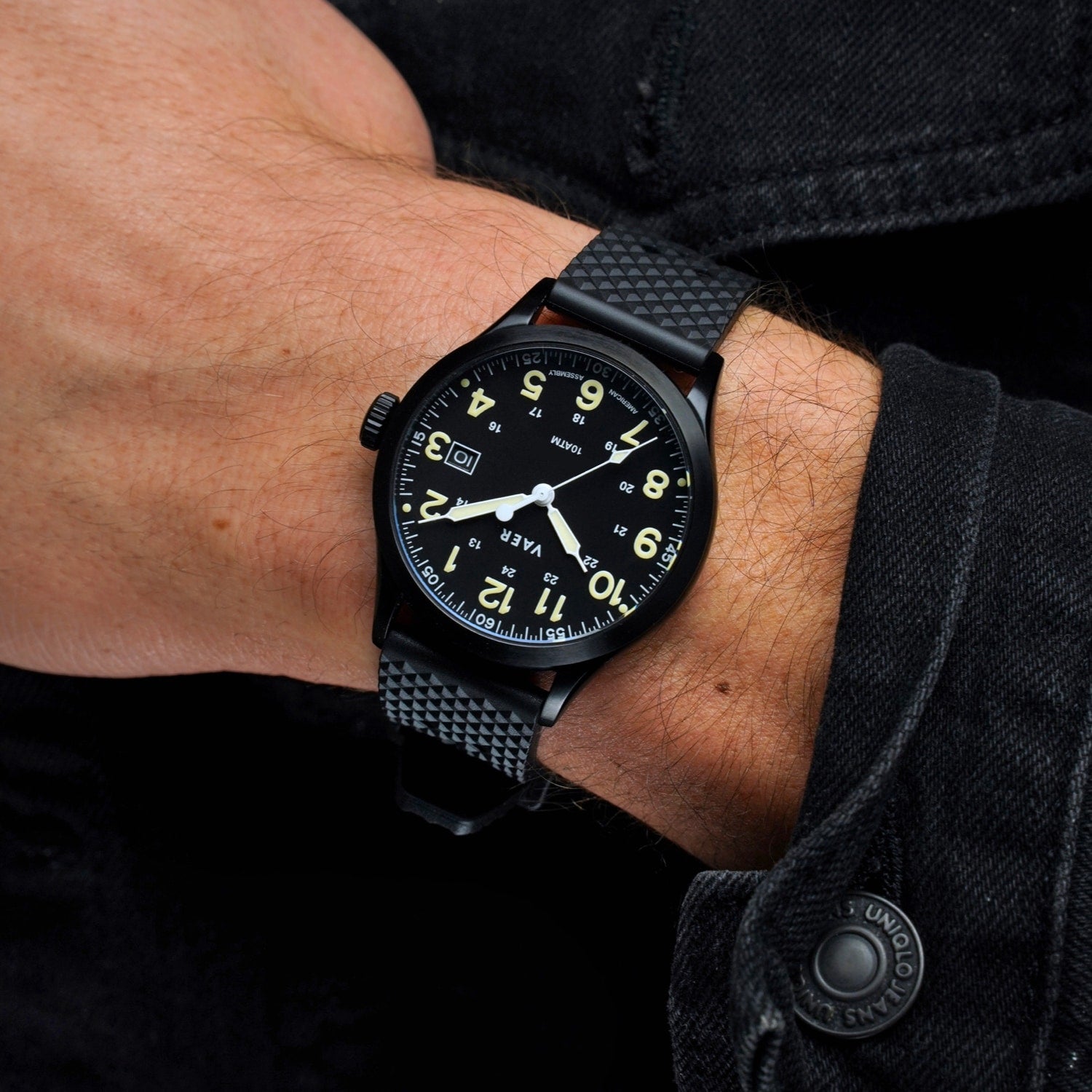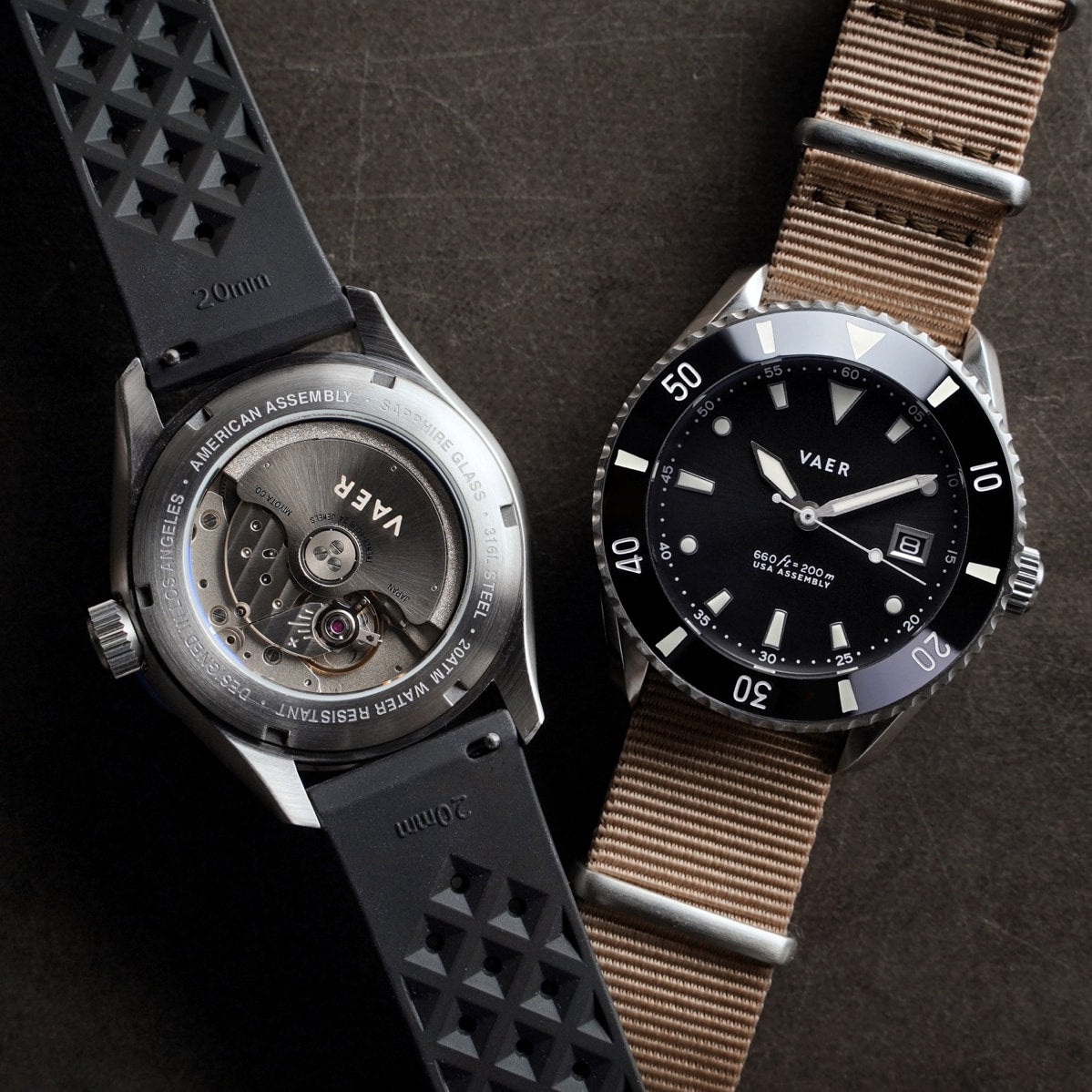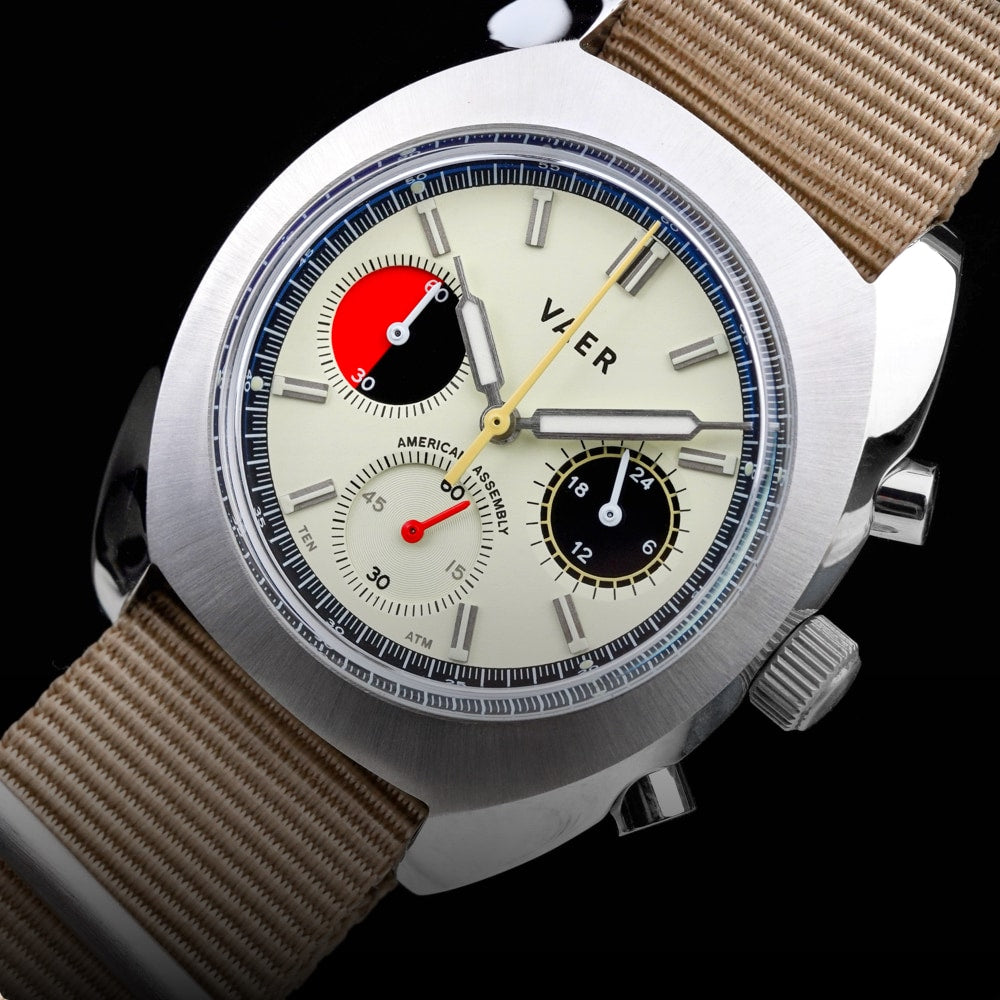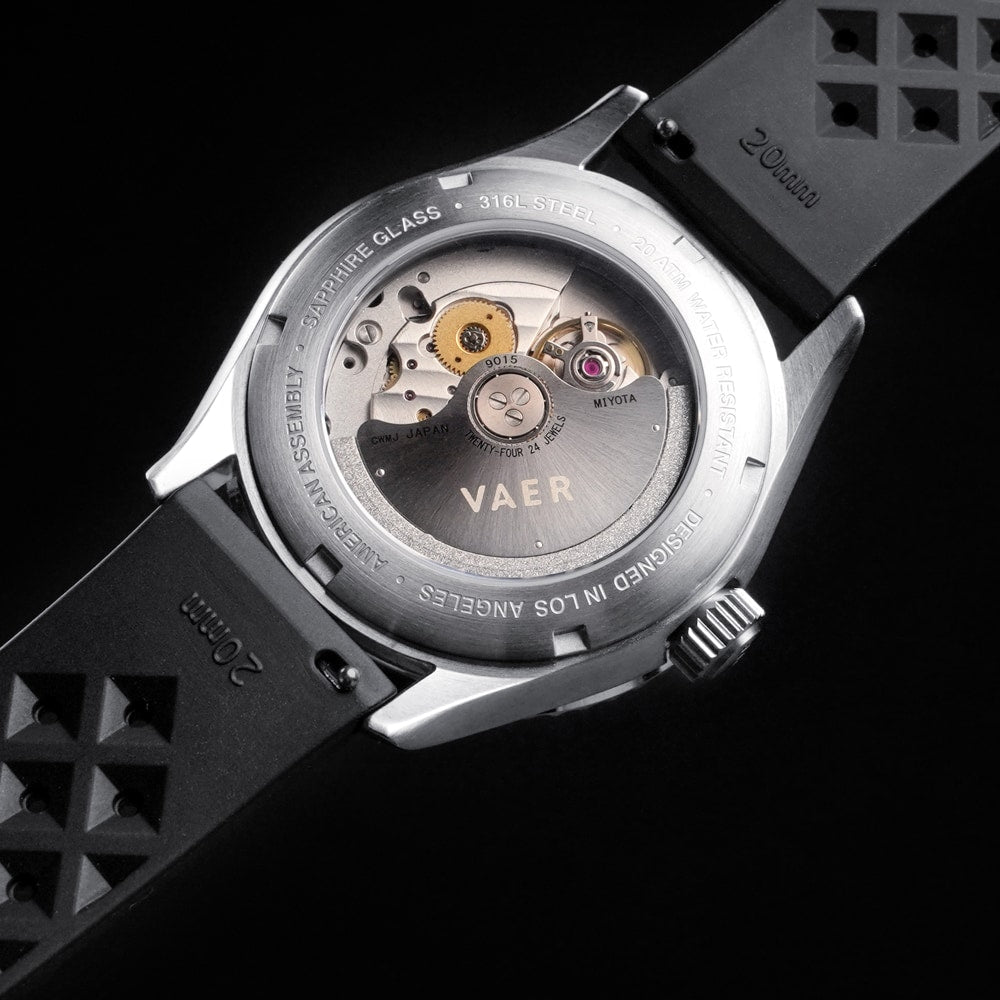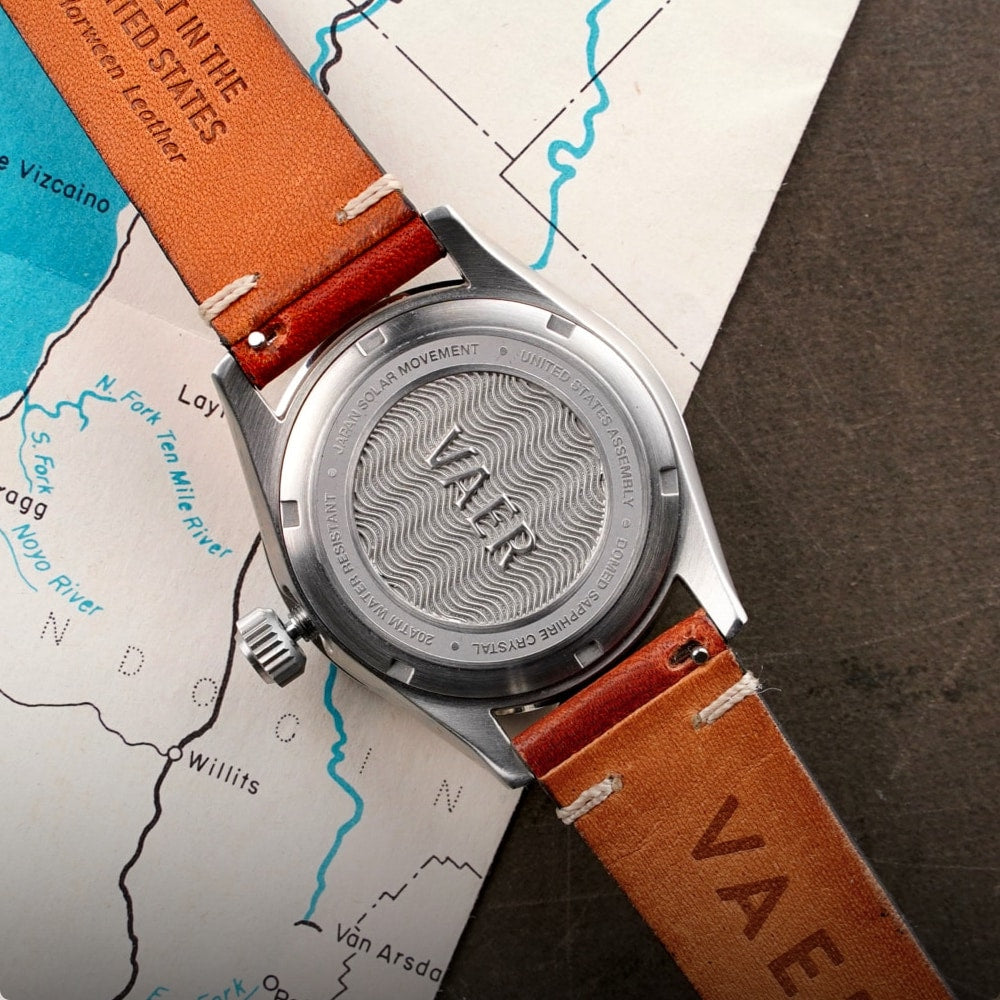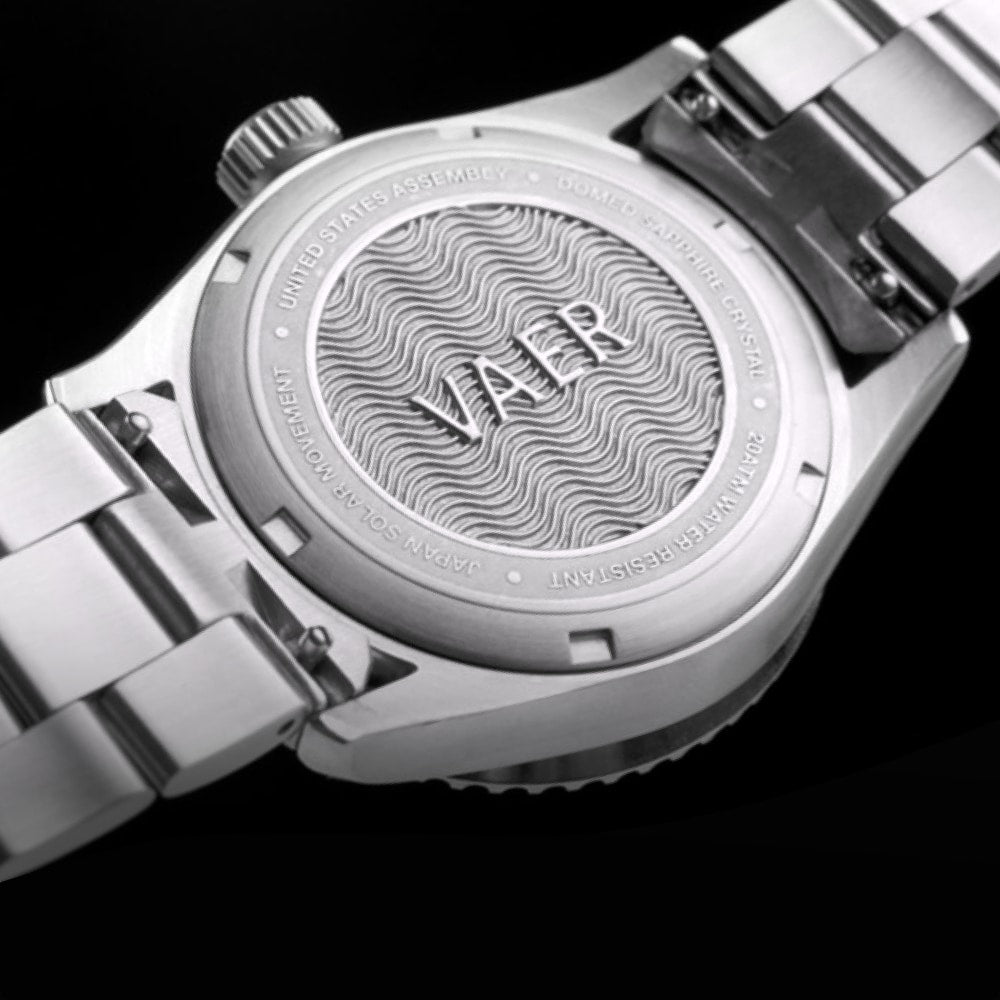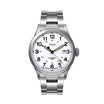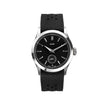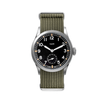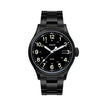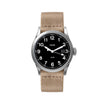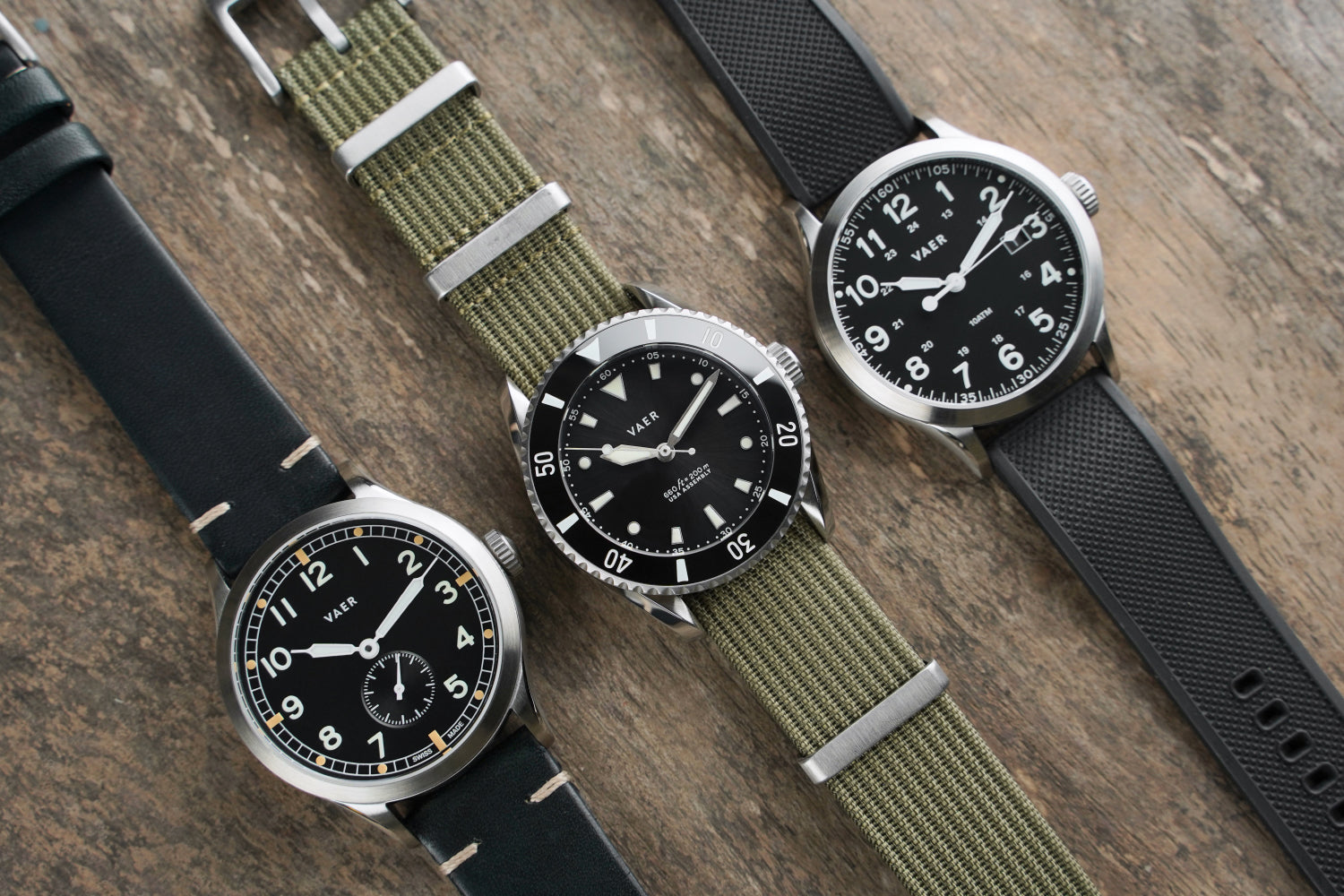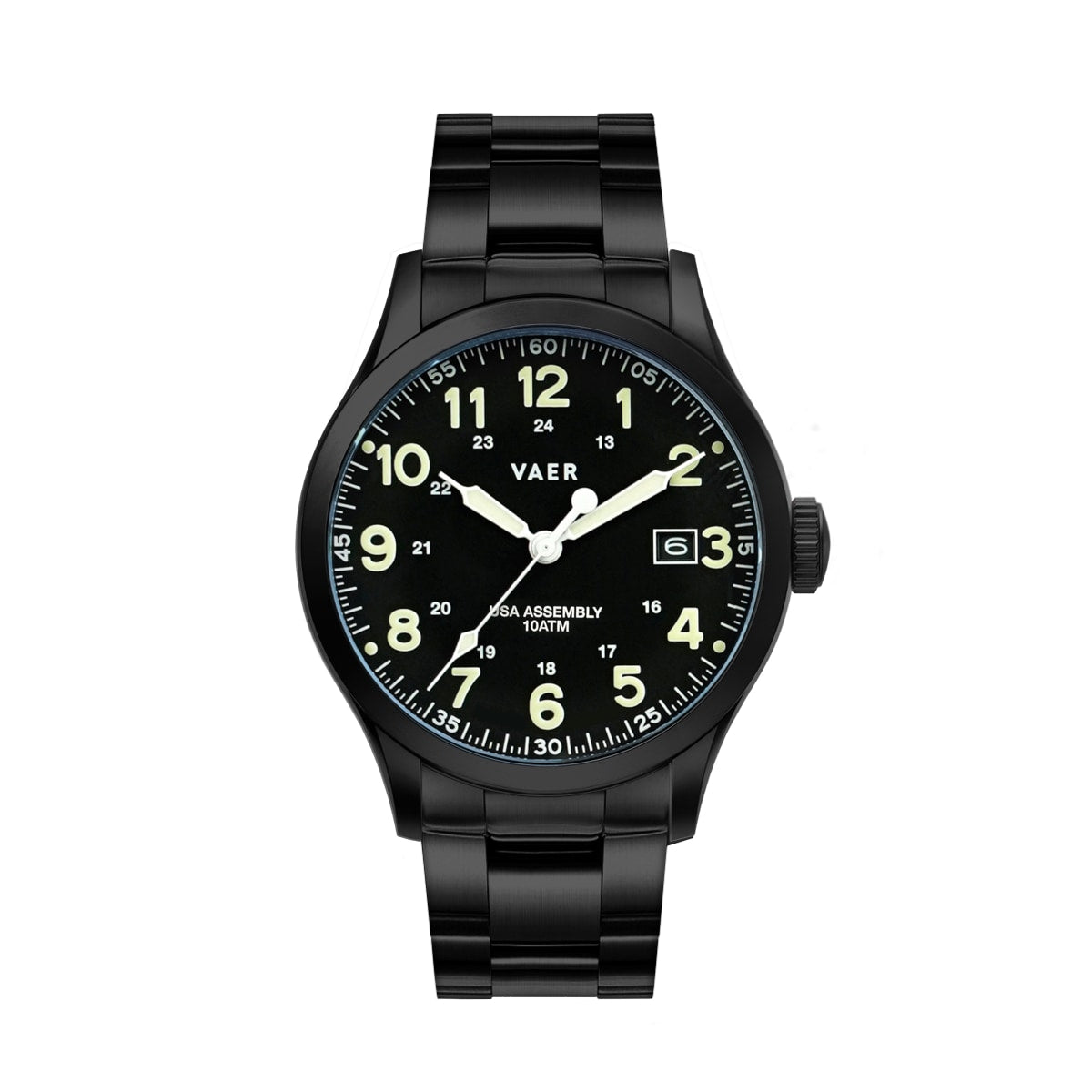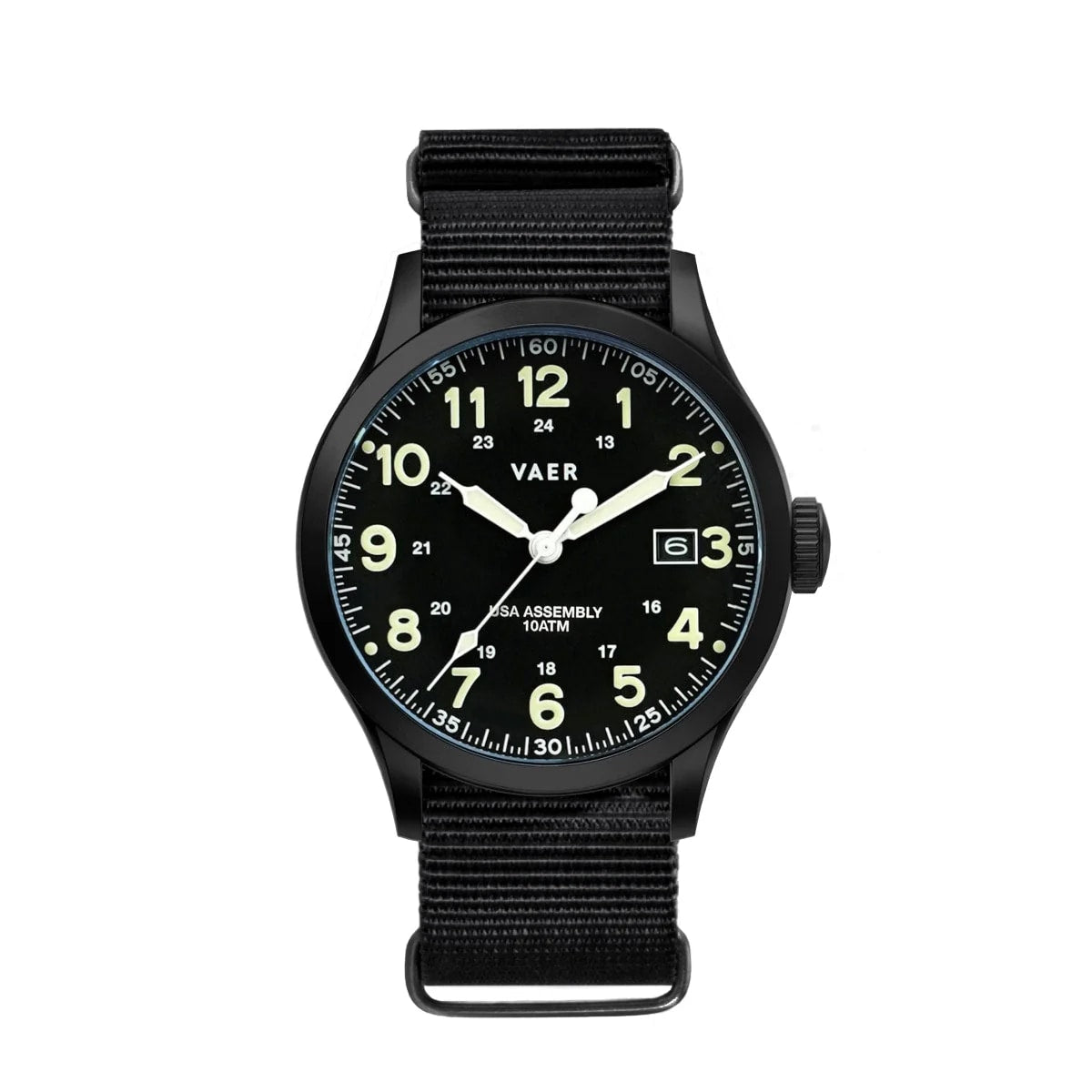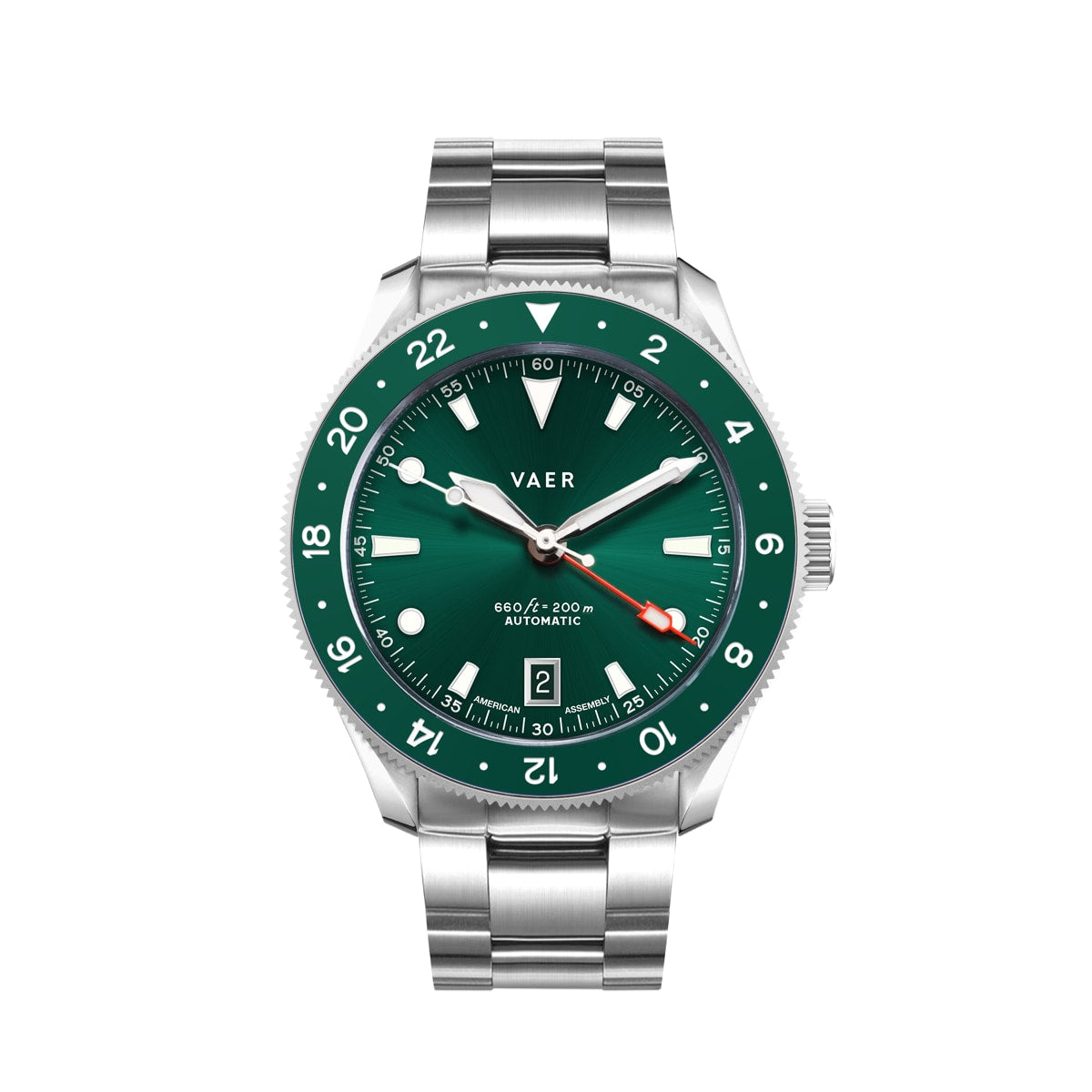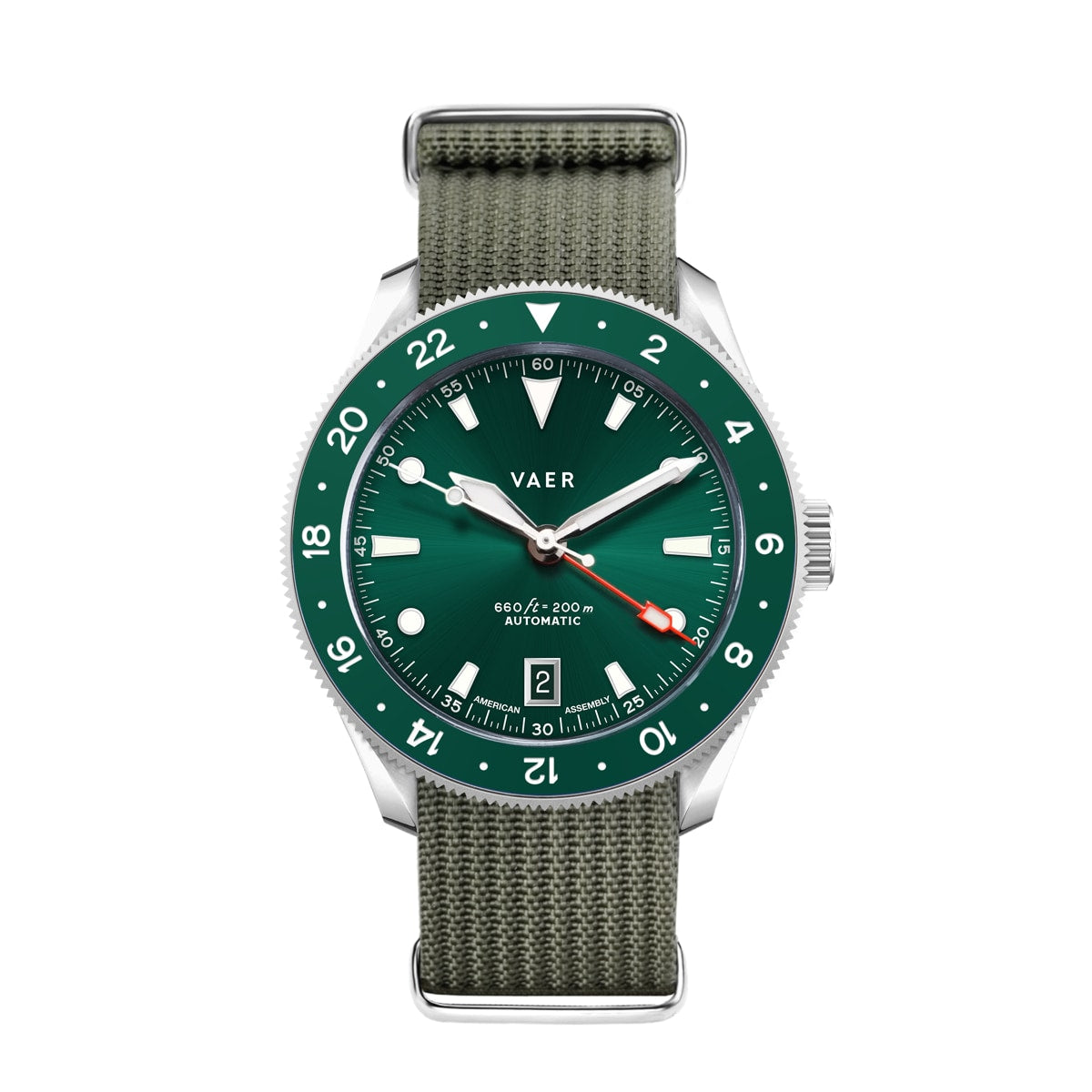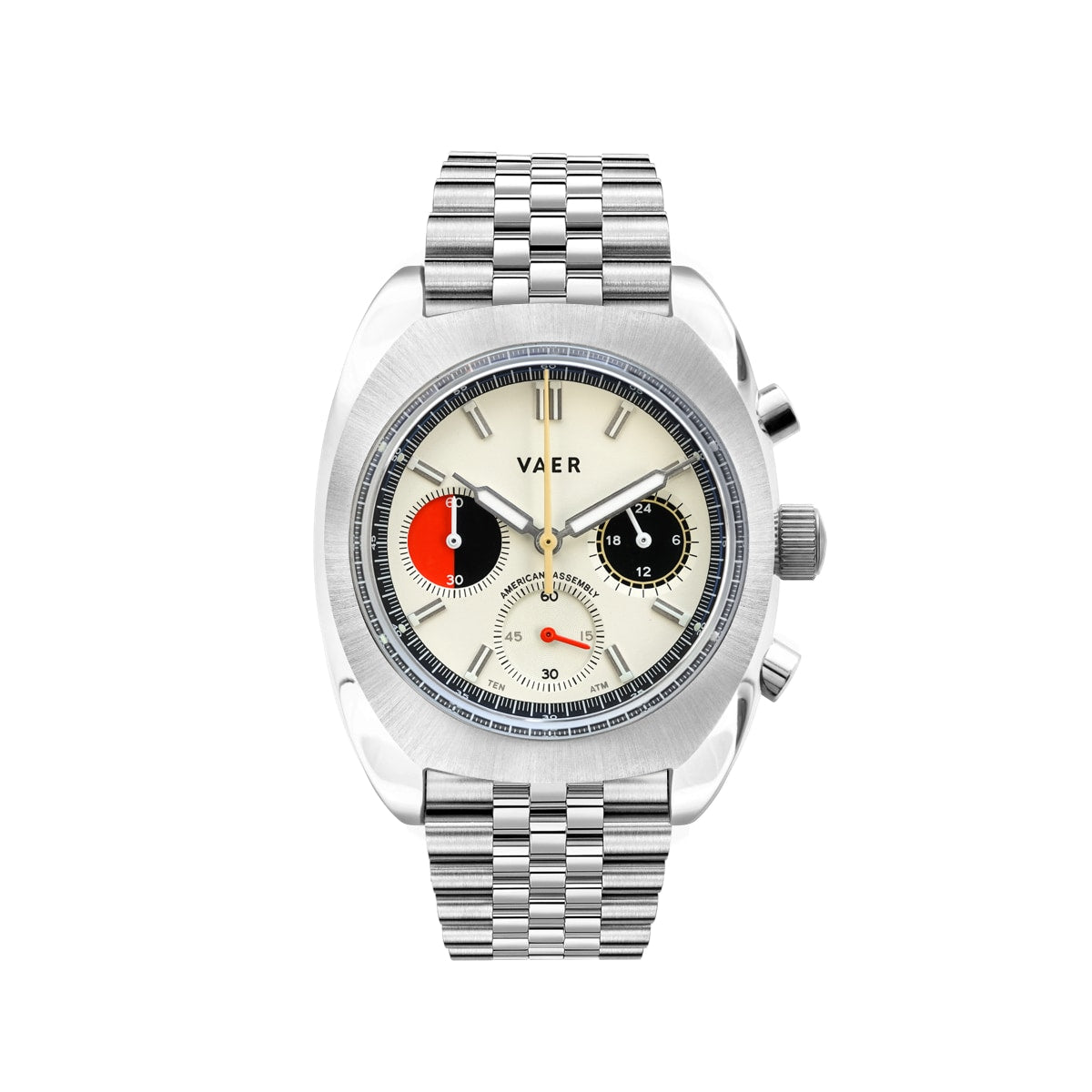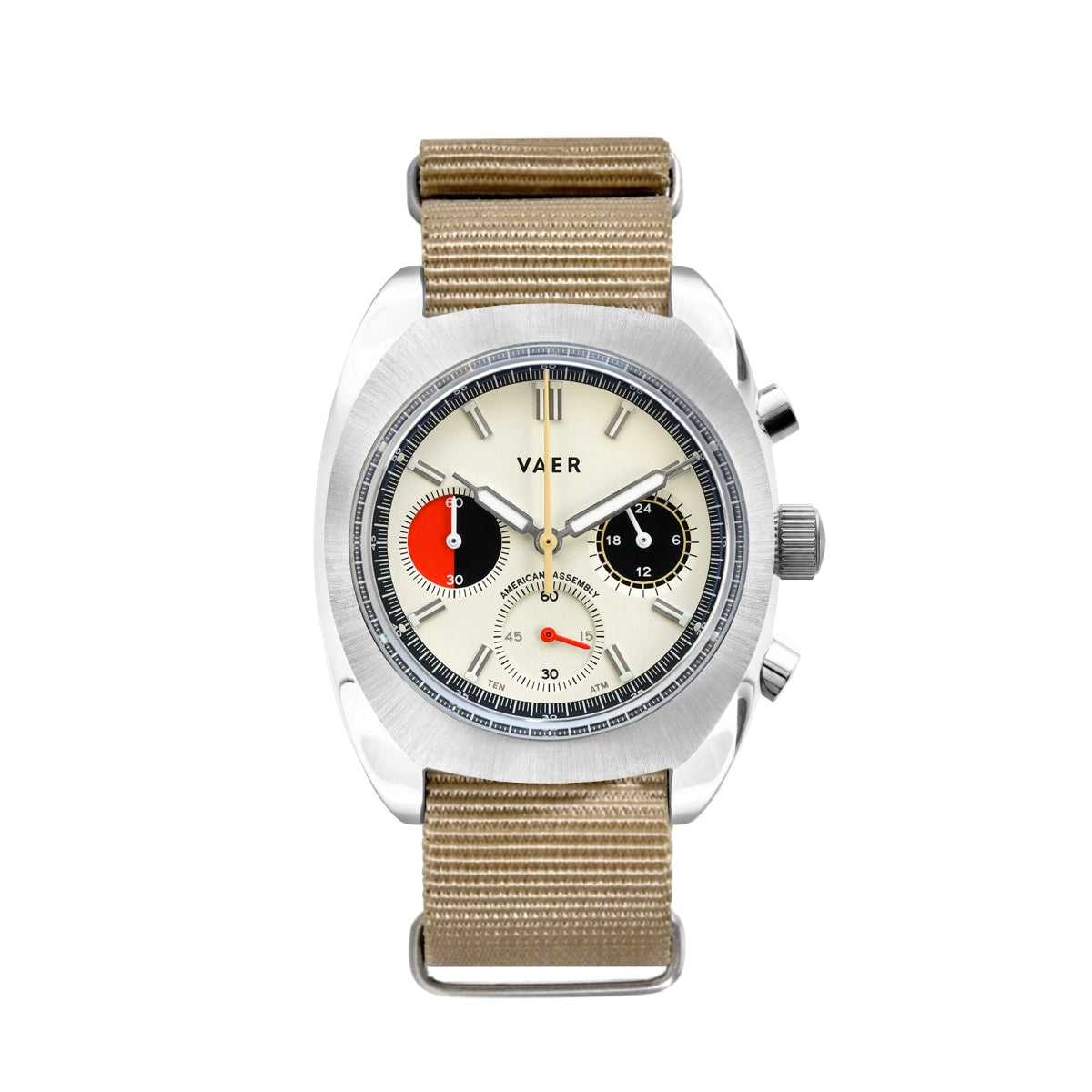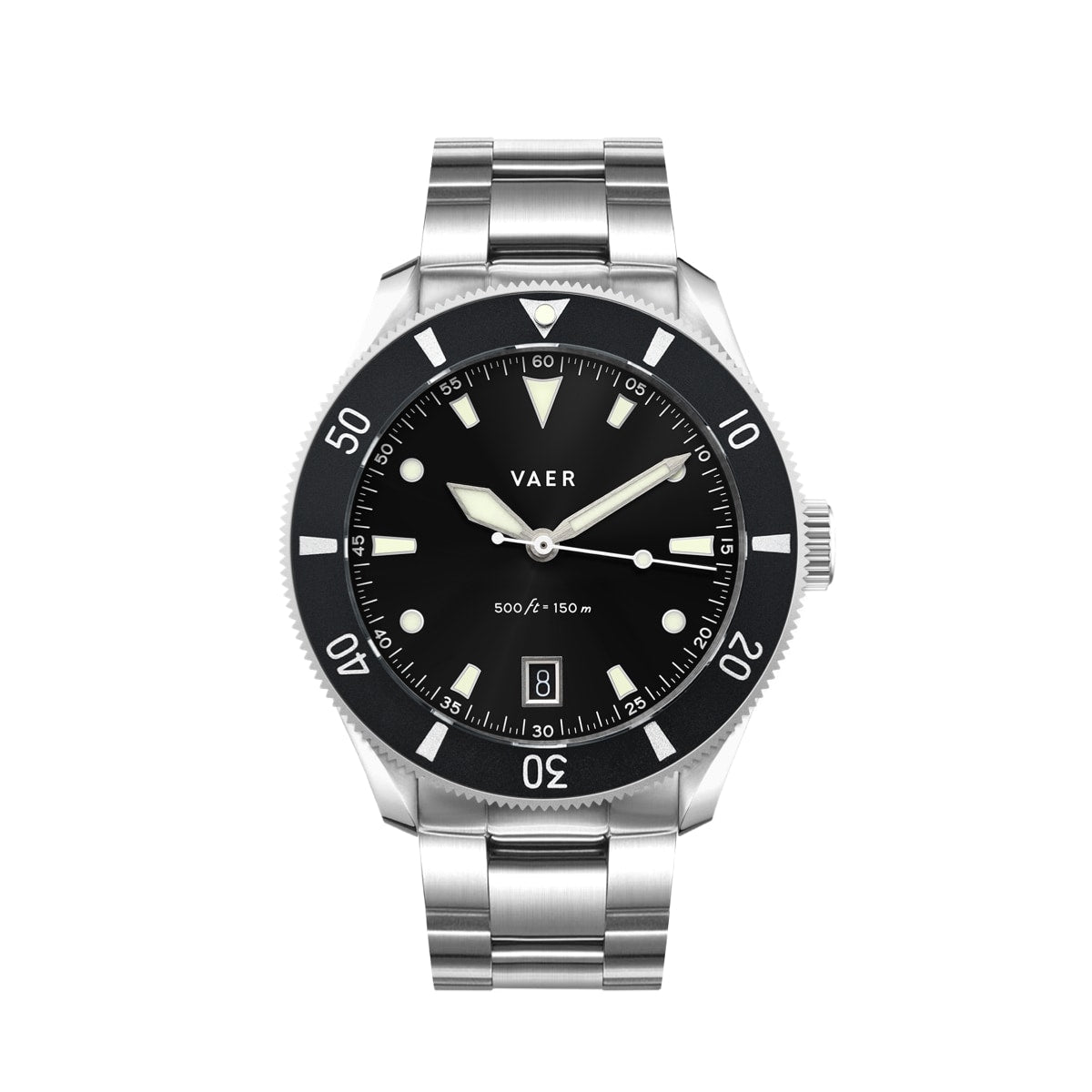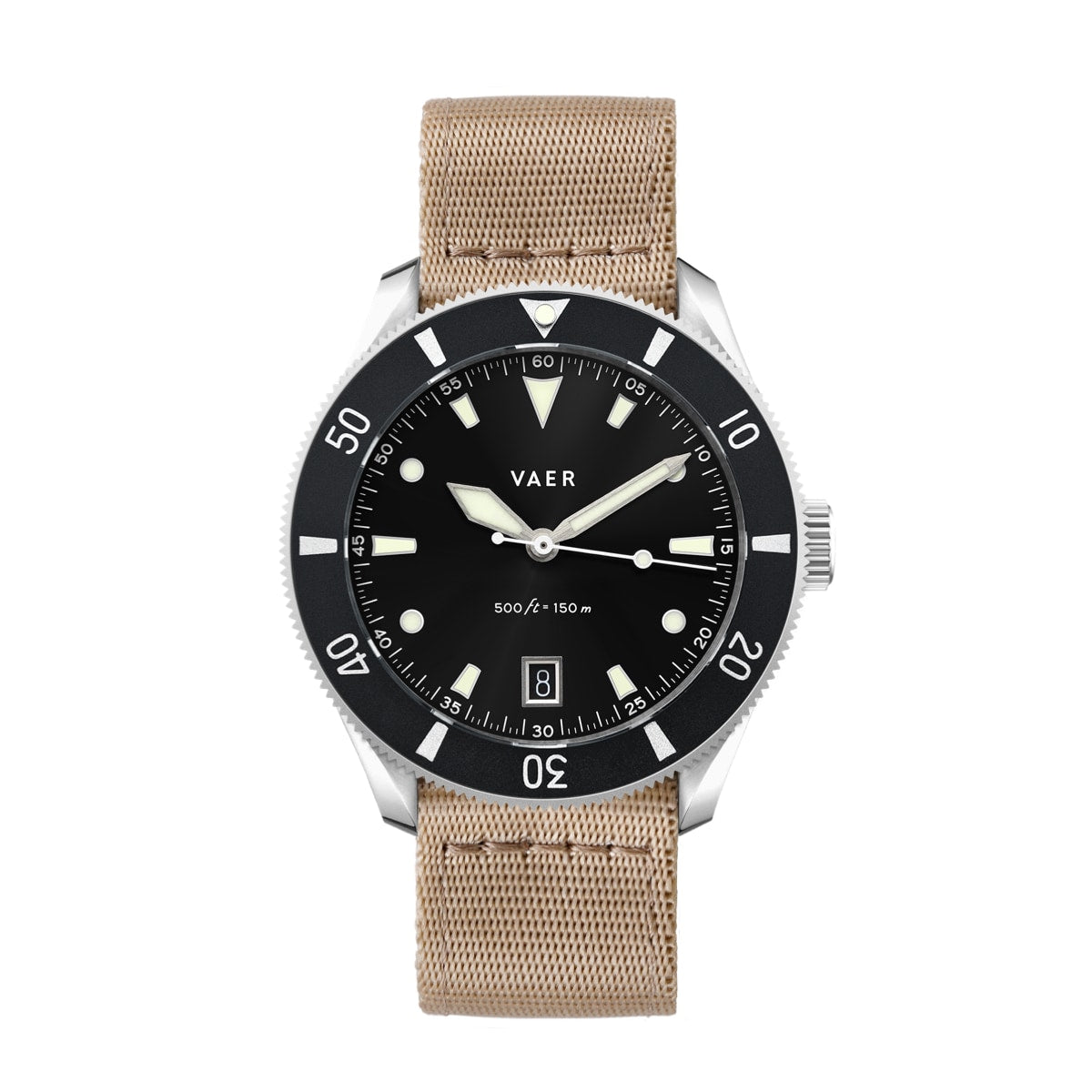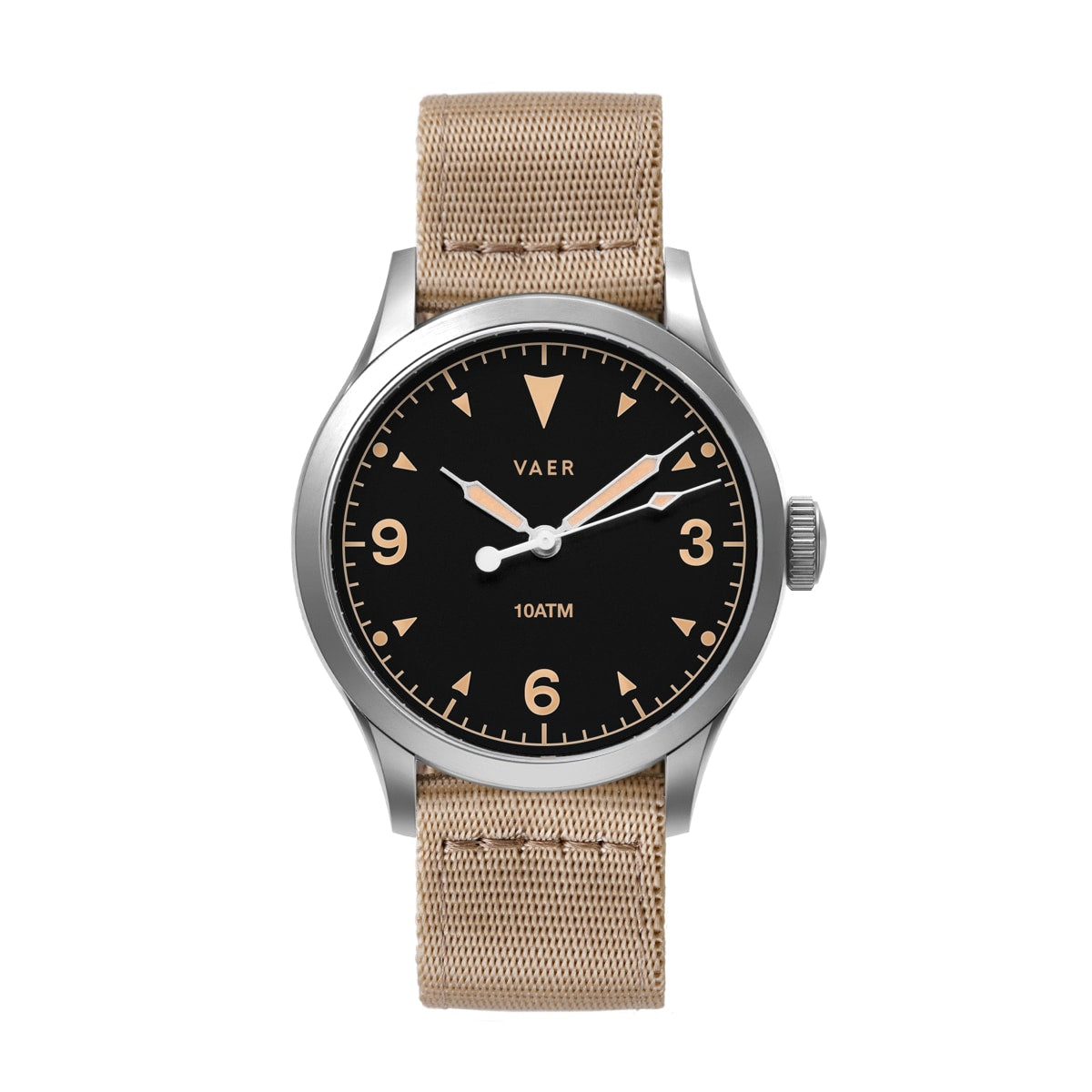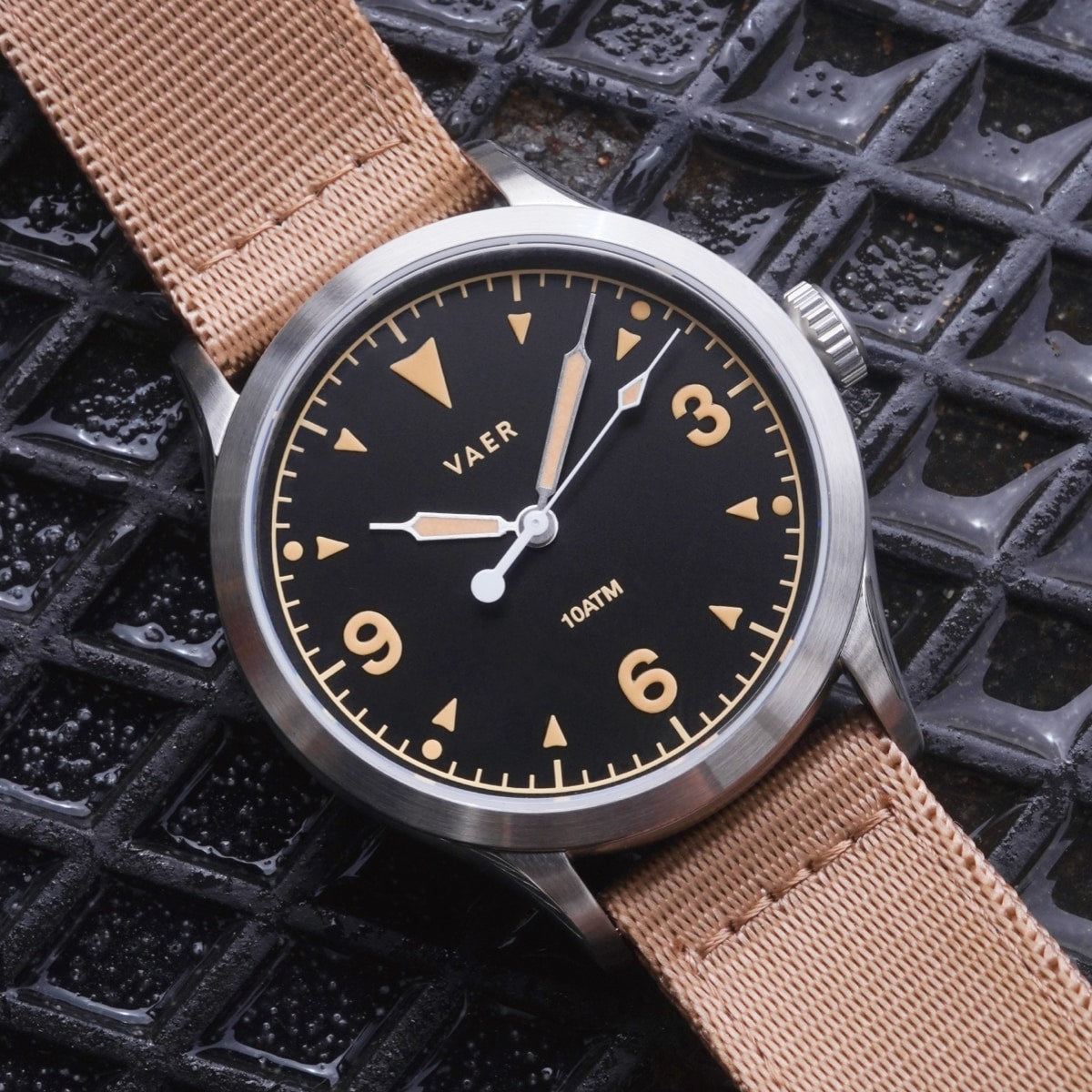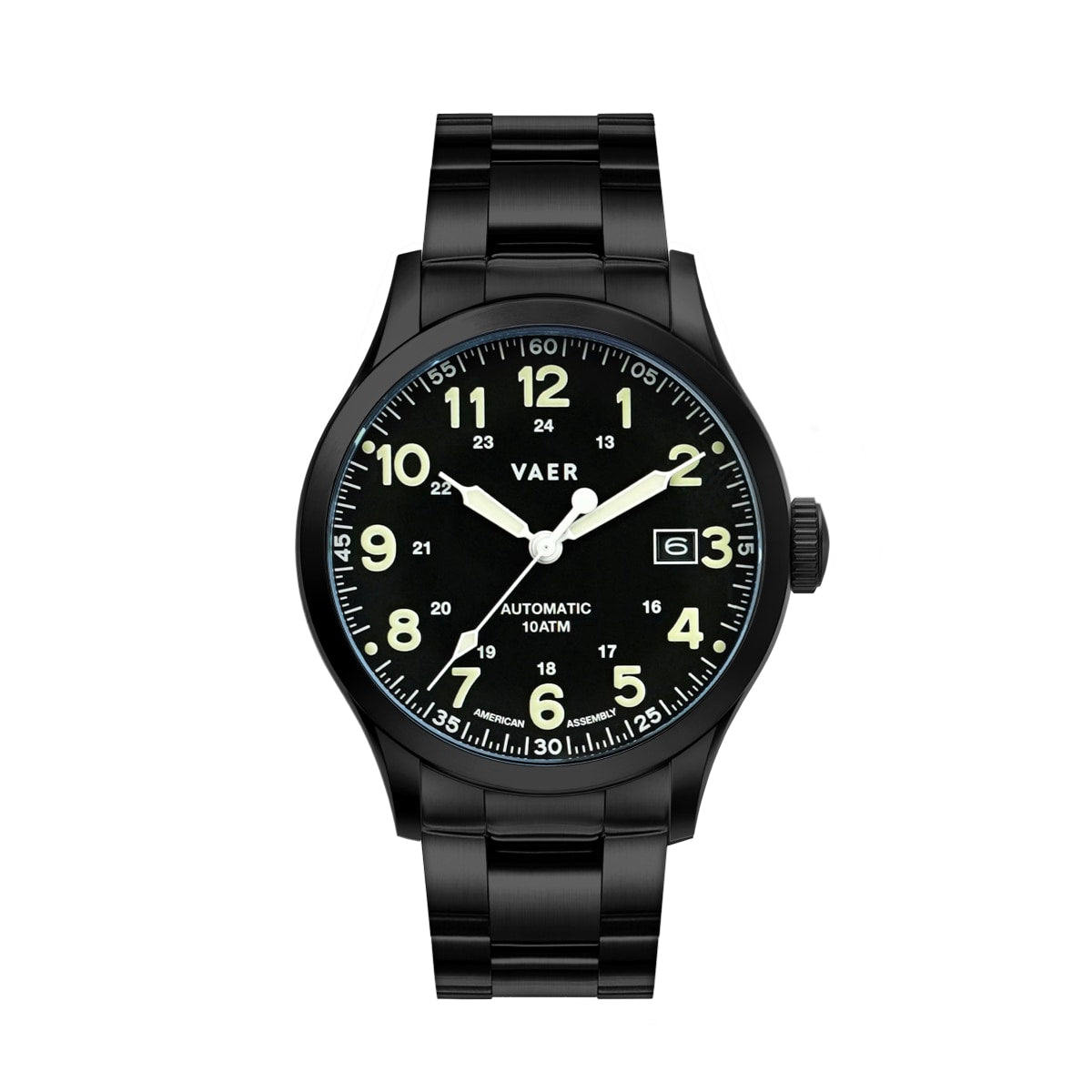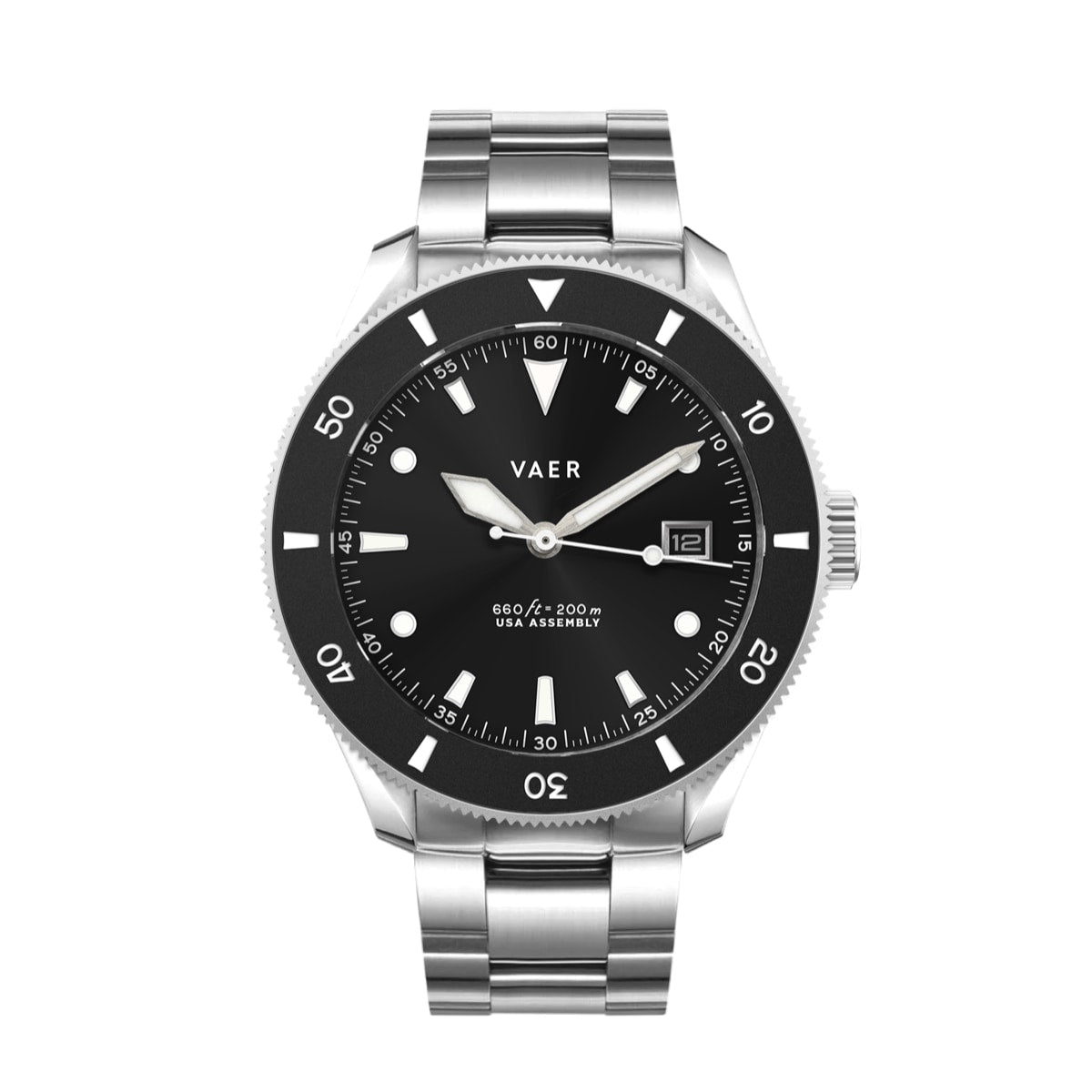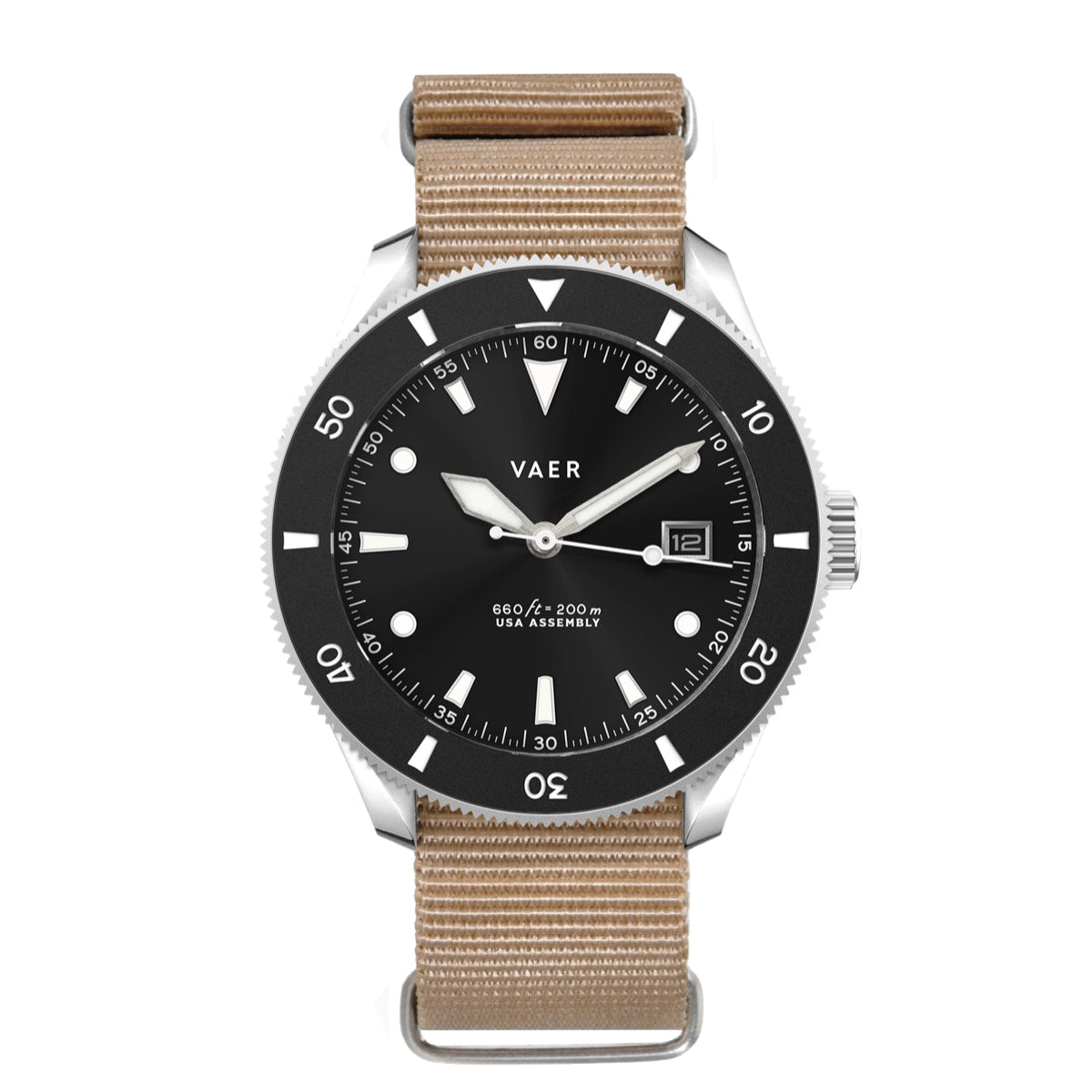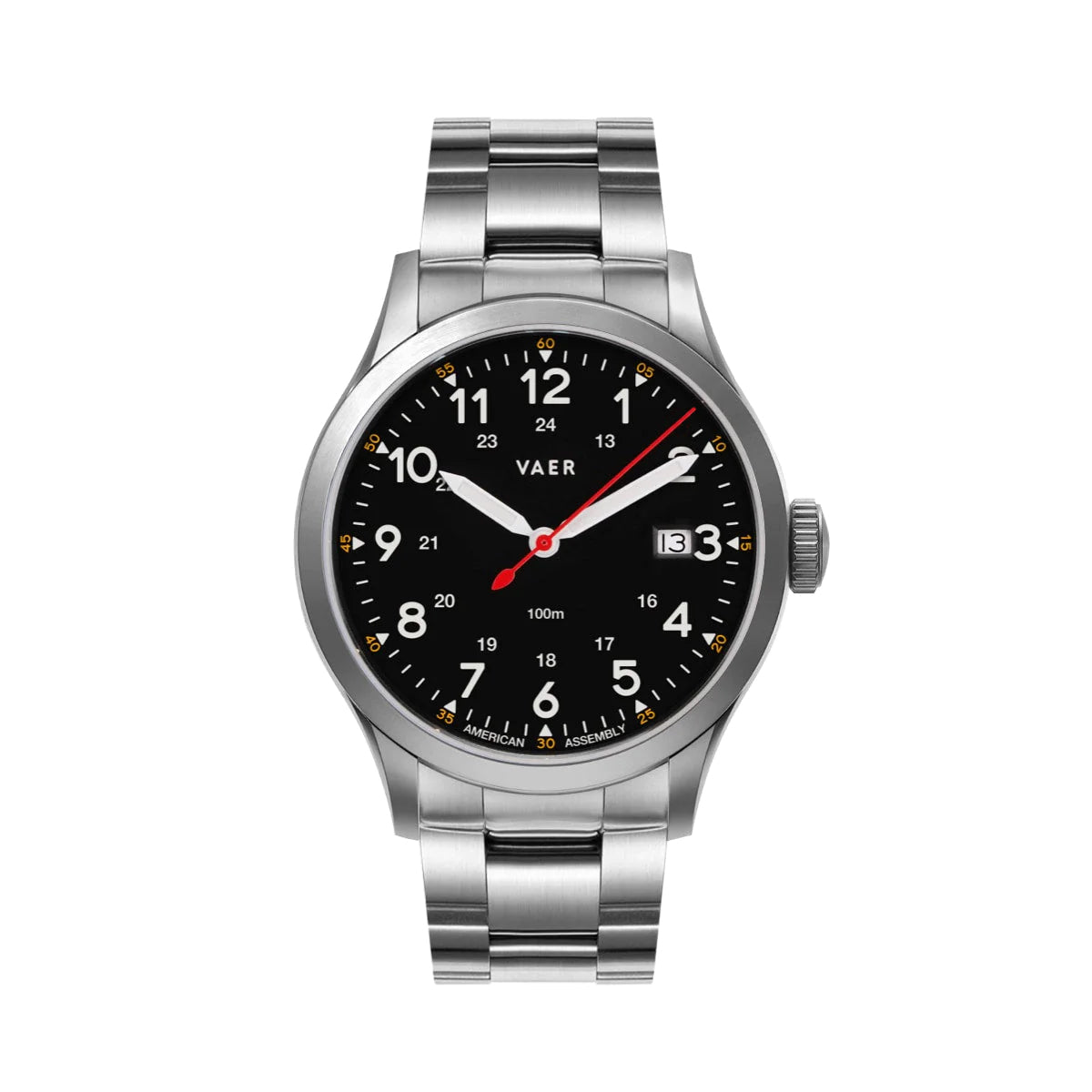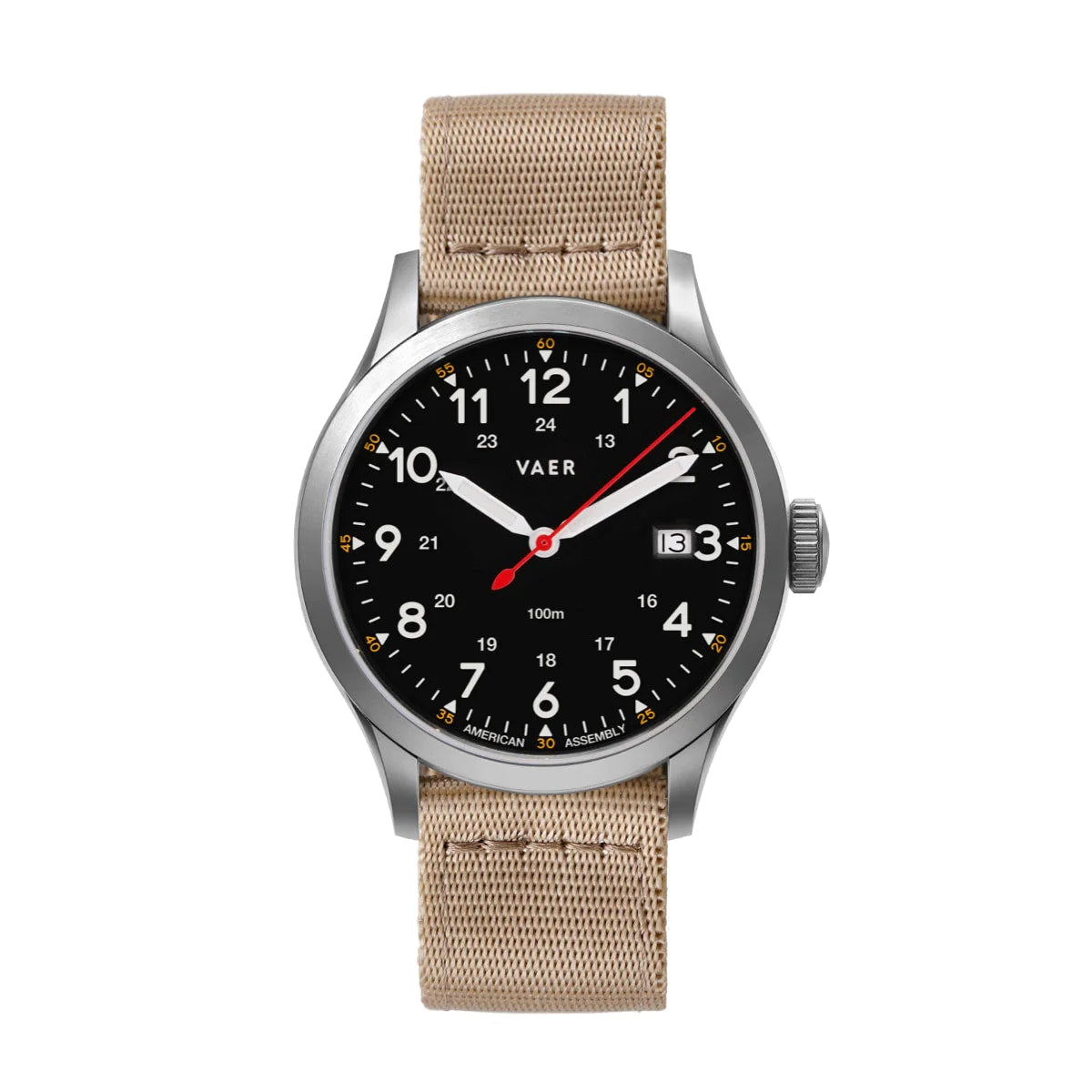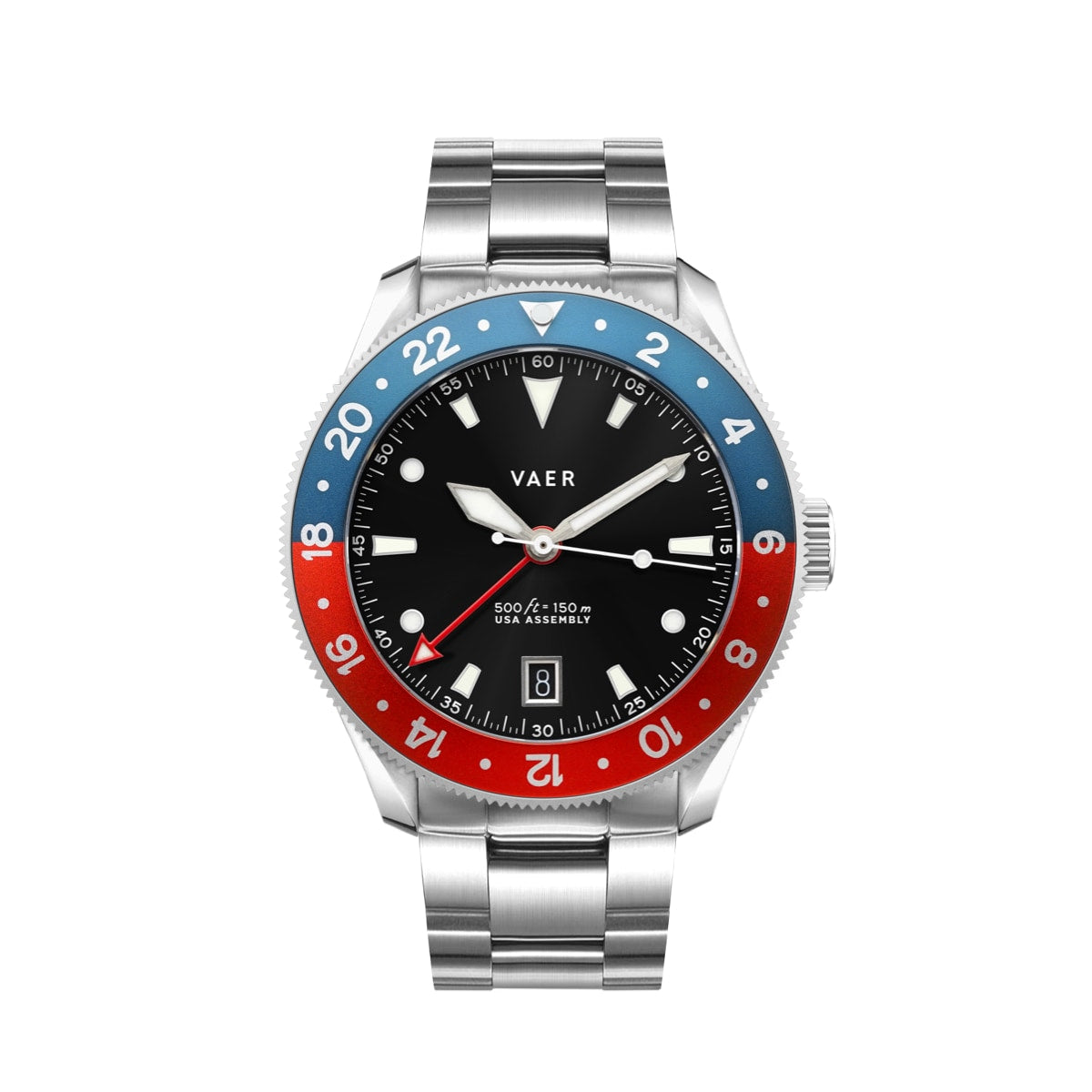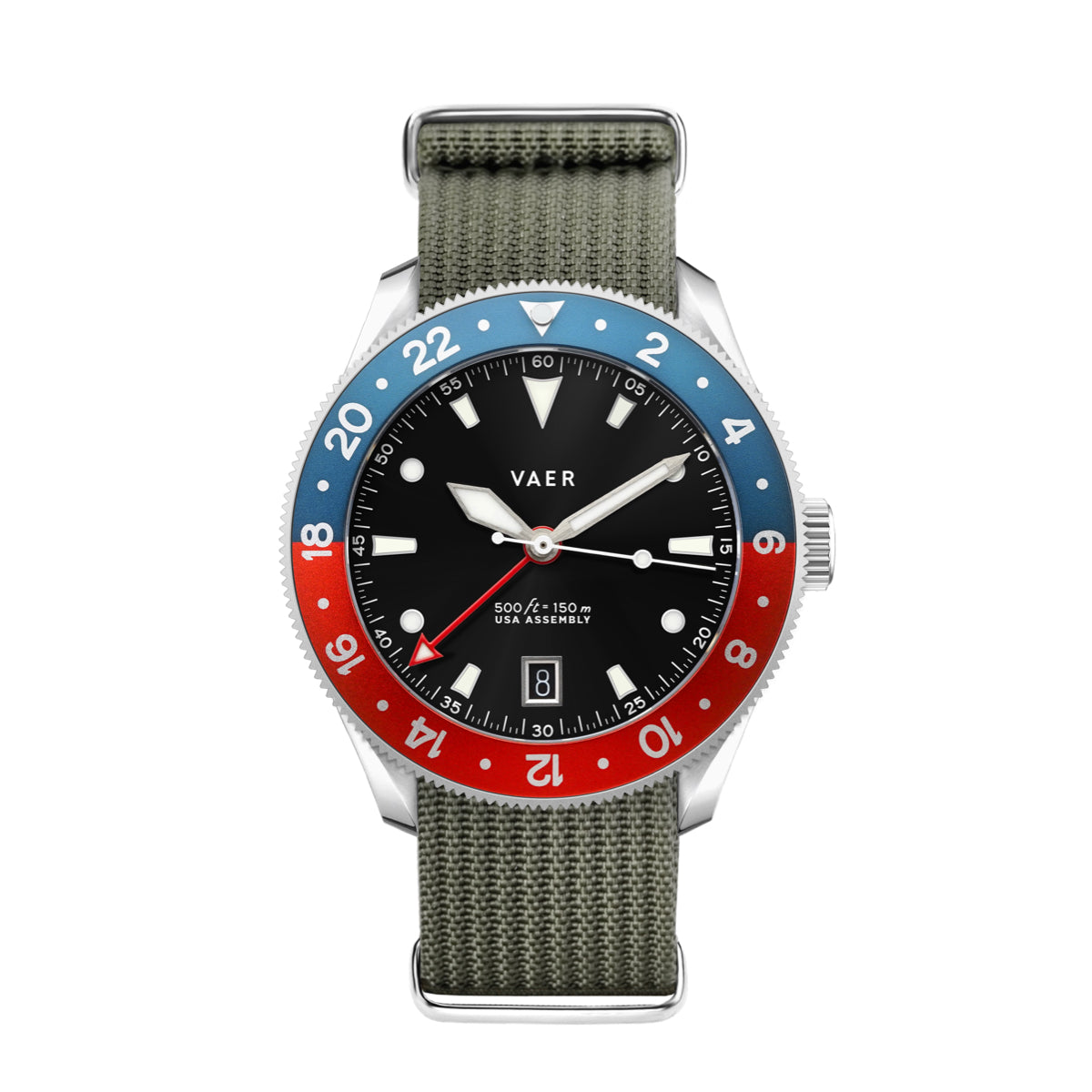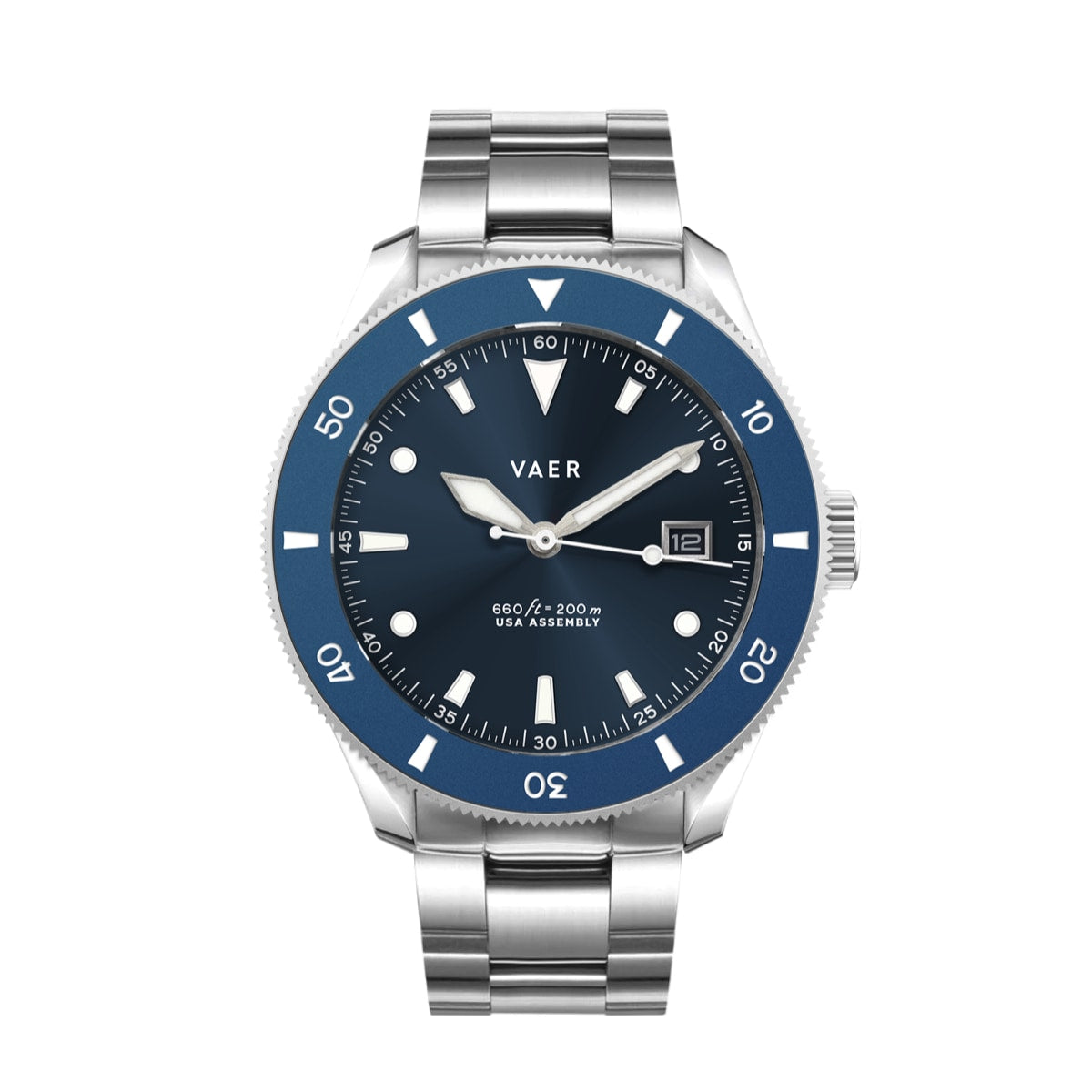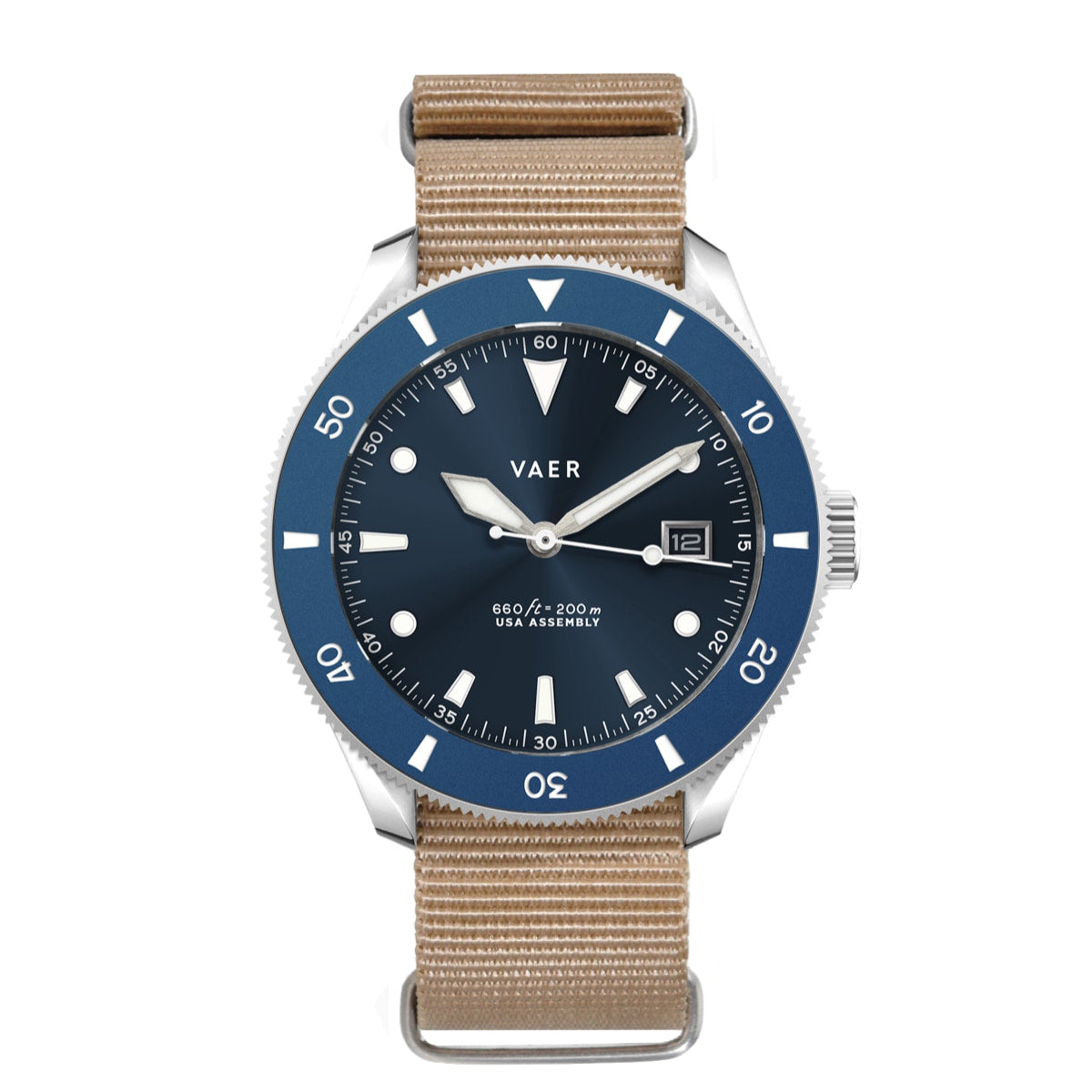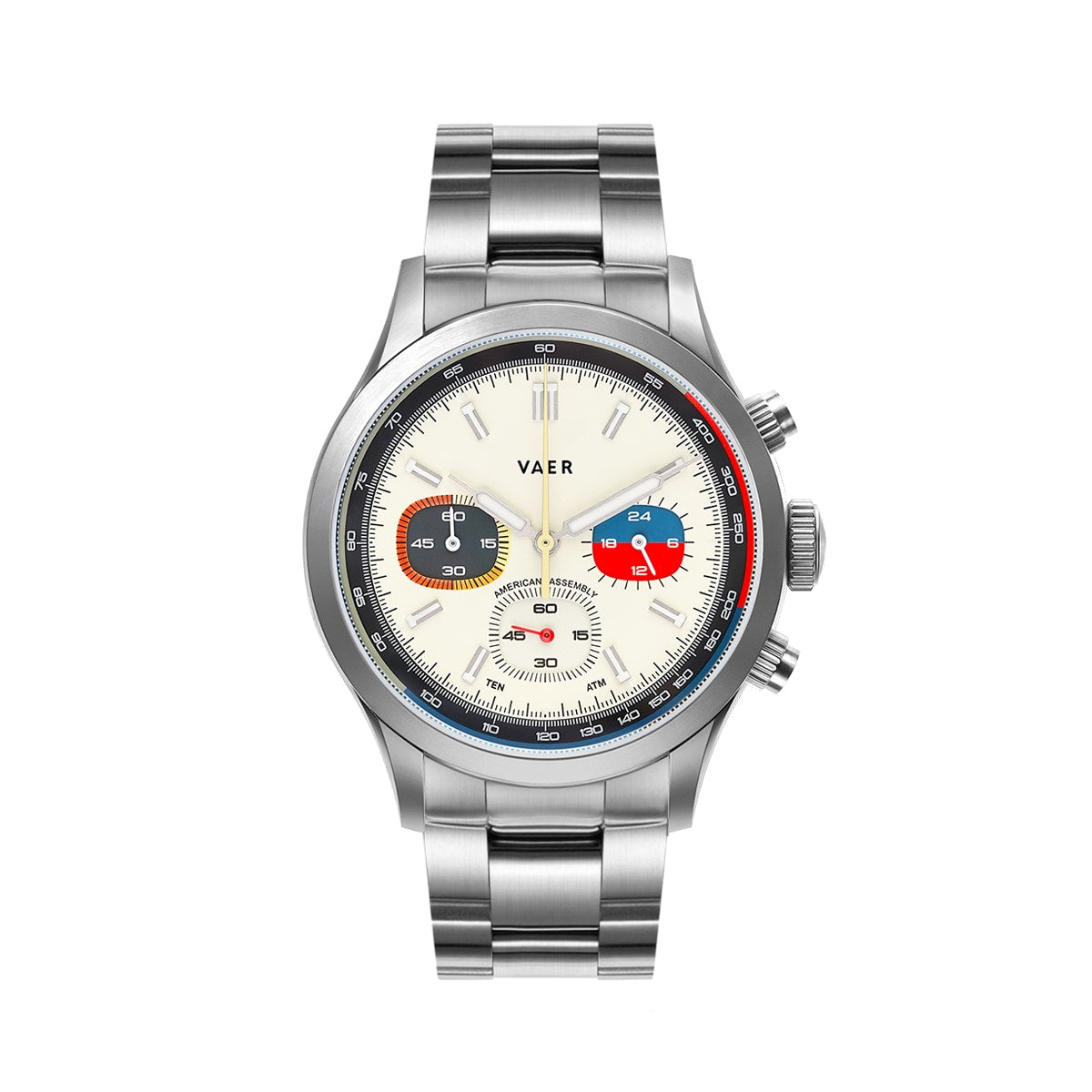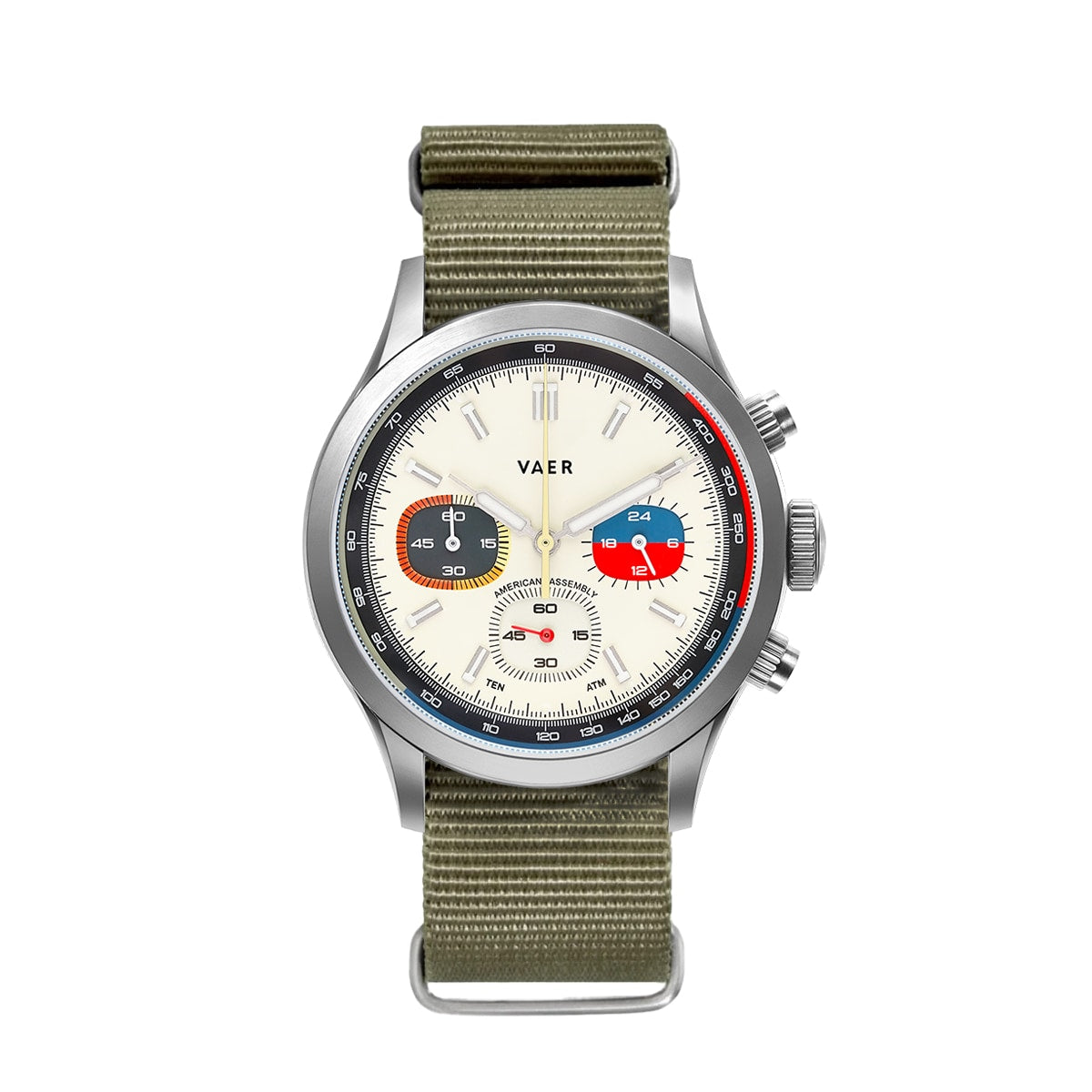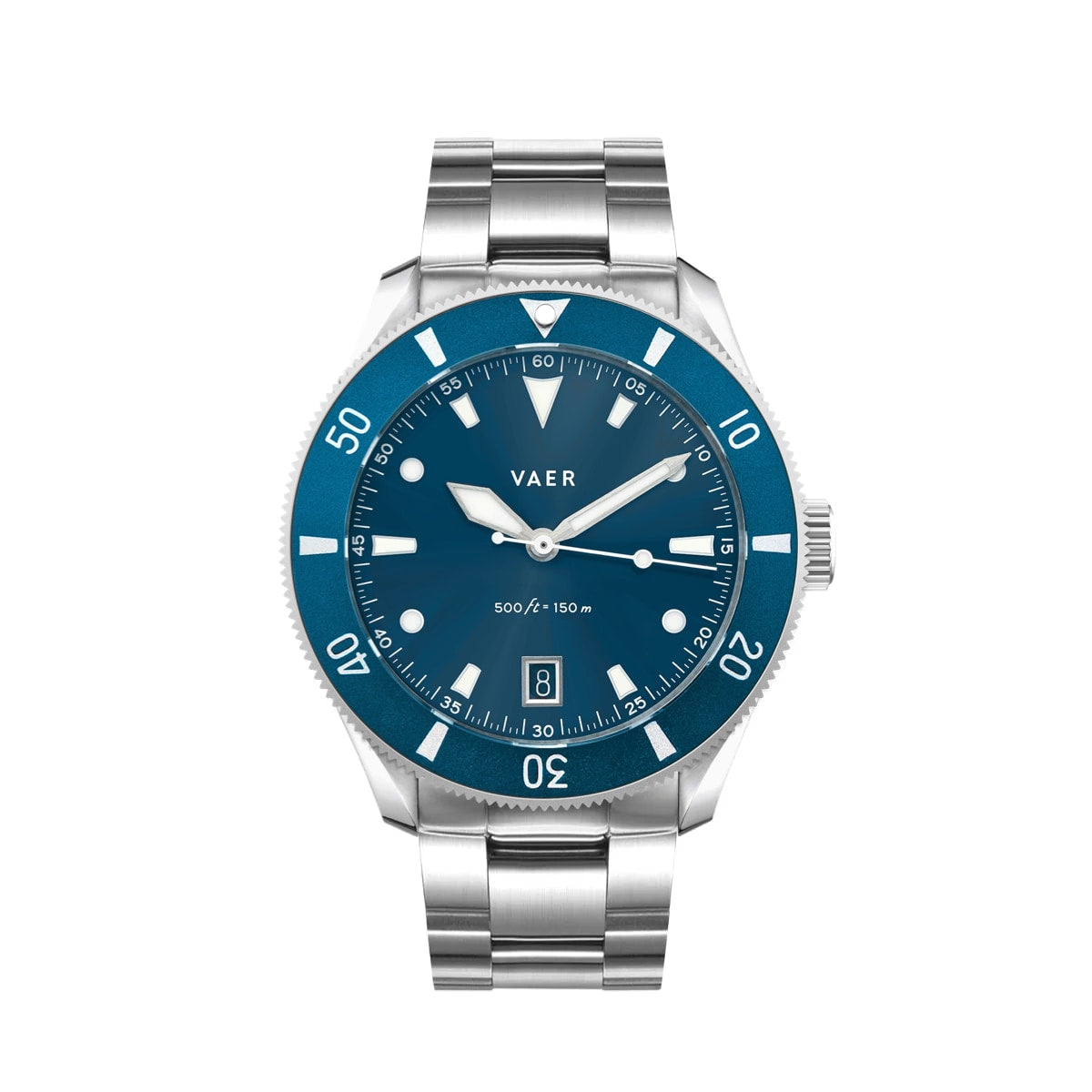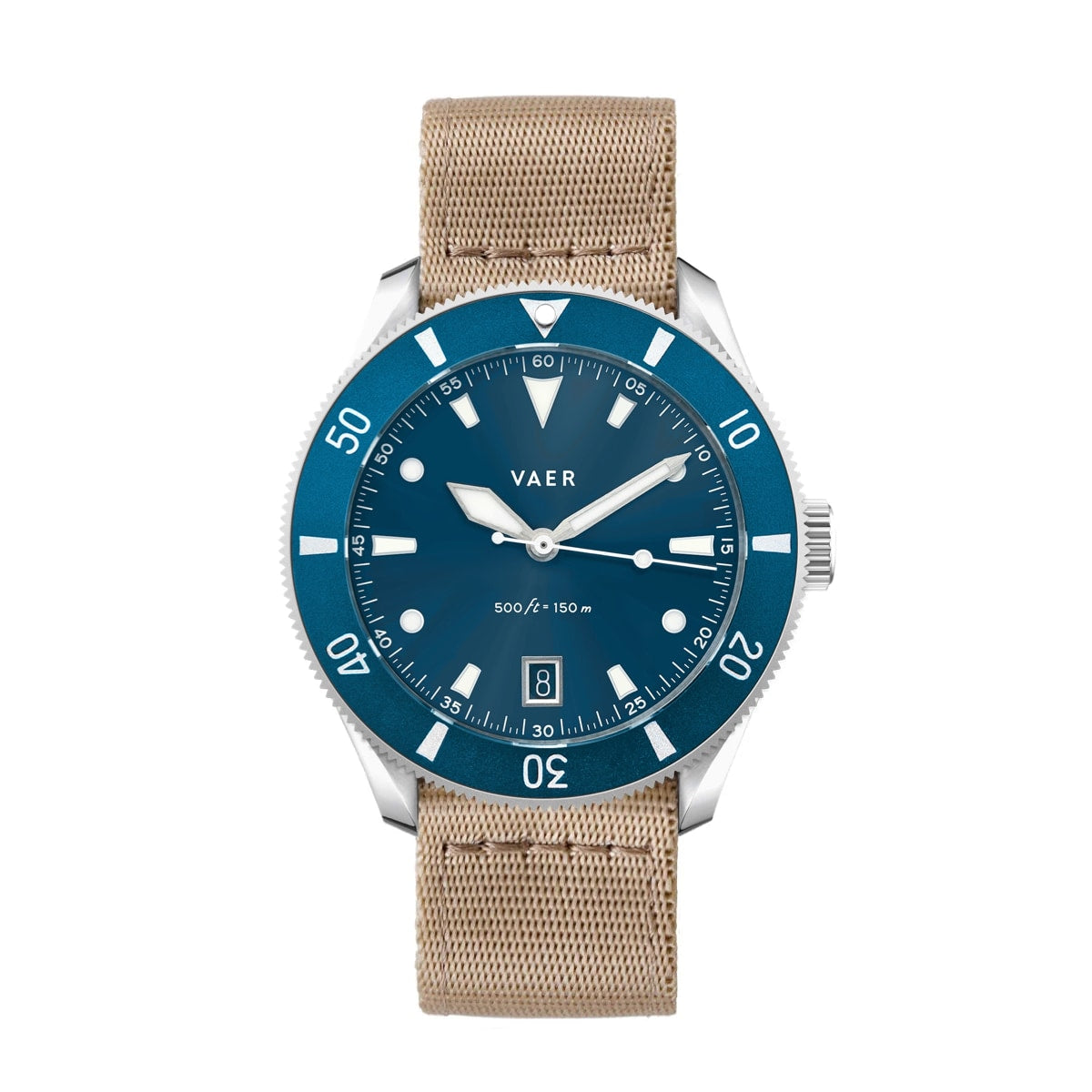When it comes to choosing a watch, one of the most crucial decisions involves selecting the type of movement that best suits your lifestyle. While all watches keep time, a watch’s movement has a huge impact on it’s real-world functionality, and there are significant differences between each movement type, whether that’s solar, quartz or mechanical.
At Vaer, we pride ourselves on offering a diverse range of watches and movements to cater to various needs and tastes. Contrary to some other brands, we do not believe one type of movement is better than another, rather they are meant to suit different needs.

What is the Role of a Watch Movement?
If you’re new to watches, it’s worth providing a quick reminder of what a watch movement is. The movement is the part of a watch that keeps time and powers the watch's hands - it can be thought of as the engine. There are 3 main movements movement types, quartz, solar-powered quartz, and mechanical.
Below, we’re going to outline the advantages and disadvantages of each and help you determine which option is the best fit for your specific needs.
Quartz Movements
Quartz watches are the epitome of modern reliability. Introduced commercially in the late 1960s, quartz technology revolutionized the watch industry with its unmatched accuracy and affordability.
How They Work
Quartz watches are powered by a battery that sends an electrical current through a small quartz crystal. This crystal oscillates at a precise frequency, driving a motor that moves the watch hands.
Advantages
- Accuracy: Quartz watches are renowned for their exceptional accuracy, often deviating by only a few seconds per month.
- Low Maintenance: These watches require minimal maintenance apart from occasional battery replacement.
- Affordability: Quartz movements are generally less expensive to produce, making these watches more affordable.
Disadvantages
- Battery Requires Replacement: The battery needs to be replaced every 2-3 years, which can be inconvenient.
- Less Prestigious: Some watch enthusiasts consider quartz movements less prestigious as they lack the craftsmanship and traditional appeal of mechanical movements.
Ideal For
Individuals seeking a reliable, low-maintenance watch that offers great accuracy at an affordable price. Quartz movements are perfect for everyday wear and those who prefer a "set it and forget it" approach. Currently, the Ameriquartz movement is the only one Vaer uses that is built in the USA, so this may affect your decision as well.
Check out our full range of Ameriquartz and quartz watch offerings here.

Solar Movements
Solar watches marry technology and sustainability, offering a modern solution to traditional timekeeping.
How They Work
Solar-powered watches use a solar cell that converts light into electrical energy, which is stored in a rechargeable battery. This battery powers the quartz movement, ensuring continuous operation.
Advantages
- Accuracy: Solar quartz movements deliver the same accuracy of traditional battery-powered quartz watches, deviating by only a few seconds per month.
- Eco-Friendly: Solar watches are environmentally friendly as they reduce the need for battery replacements.
- Low Maintenance: Similar to regular quartz watches, but with the added benefit of not needing frequent battery changes.
- Reliability: With a fully charged battery, Vaer solar watches can run for 6-months without exposure to any light. Solar-powered watches also gain charge from any light source, whether that is the sun, or candlelight (though sunlight will charge it much faster).
Disadvantages
- Initial Charge Time: It can take a few hours of light exposure to fully charge a solar watch.
- Dependence on Light: Prolonged periods (greater than 6-months) without exposure to light can eventually deplete the battery. However, exposing the watch to light is all it takes to get it started again.
Ideal For
Outdoor enthusiasts and eco-conscious individuals who appreciate sustainability and reliability. These watches are great for those who often find themselves in remote locations where traditional battery replacements might be inconvenient.
Check out our range of solar-powered watches here.

Mechanical Movements
Mechanical watches represent the artistry and soul of watchmaking. Powered by intricate gears and springs, these movements represent centuries of watchmaking craftsmanship. While mechanical movements are technically more dated technology than quartz movements, they're still often used in watches, because they carry an elevated level of quality, craftsmanship, and complexity.
How They Work
Instead of batteries, mechanical movements rely on a mainspring that is wound either manually (by rotating the crown) or automatically (by the natural movement of the wearer’s wrist). This mainspring slowly unwinds, releasing energy into a series of gears that move the watch hands. These days, the most common type of mechanical movement is automatic (all Vaer’s are automatic). However, you still may see some dress watches or field watches that are hand-wind only and do not wind from wear. You will often see the term automatic used interchangeably with the term mechanical.
Advantages
- Craftsmanship: Mechanical movements are often seen as a hallmark of fine watchmaking, showcasing fine craftsmanship and engineering. Vaer mechanical watches feature an exhibition caseback, allowing the owner to view the intricacies of a movement powered by the wearer.
- Longevity: With proper care, mechanical watches can last for generations. Even when parts are discontinued, many mechanical movement parts can be machined or salvaged, as there are no electronic components that require mass production, which can become outdated.
- No Battery Needed: These watches do not use batteries, relying instead on the energy stored in the mainspring.
Disadvantages
- Maintenance: Mechanical watches require regular servicing to maintain accuracy and functionality.
- Accuracy: Mechanical watches are generally less accurate than quartz and solar watches, with potential deviations of several seconds per day. Vaer automatic watches are regulated to -10 to +15 seconds per day.
- Cost: Mechanical watches are typically more expensive due to the complexity of their movements. When it does come time to service, they also cost more.
- Limited Power-Reserve: Most mechanical watches come in around a 40-hour reserve, which means that if the watch is not wound or worn for 40 hours, it will stop, therefore losing track of the time. The mainspring can only stay wound tight enough to power the gears for so long before it unwinds. For those who wear watches infrequently, quartz or solar may be preferred.
Ideal For
Watch aficionados and collectors who value tradition, craftsmanship, and the mechanical artistry of watchmaking. Ideal for those who appreciate the tactile experience of winding a watch and the historical significance of mechanical movements.
Check out our range of mechanical watches here.

Conclusion
Choosing the right watch movement depends largely on your lifestyle and personal preferences. If you prioritize accuracy and convenience, a quartz watch might be your best bet. For those who prefer a perpetual option with the reliability of modern technology, a solar-powered watch is an excellent choice. Meanwhile, if you appreciate the art and tradition of watchmaking, a mechanical watch will provide a timeless connection to horological history.
At Vaer, we offer a wide range of watches featuring each of these movements, ensuring that you can find the perfect watch to suit your needs. Regardless of the movement you choose, you can be confident that your Vaer watch is made to last. Every watch we make comes with a screw-down crown, 100m of water resistance, scratchproof sapphire crystal, and a 2-year warranty.


